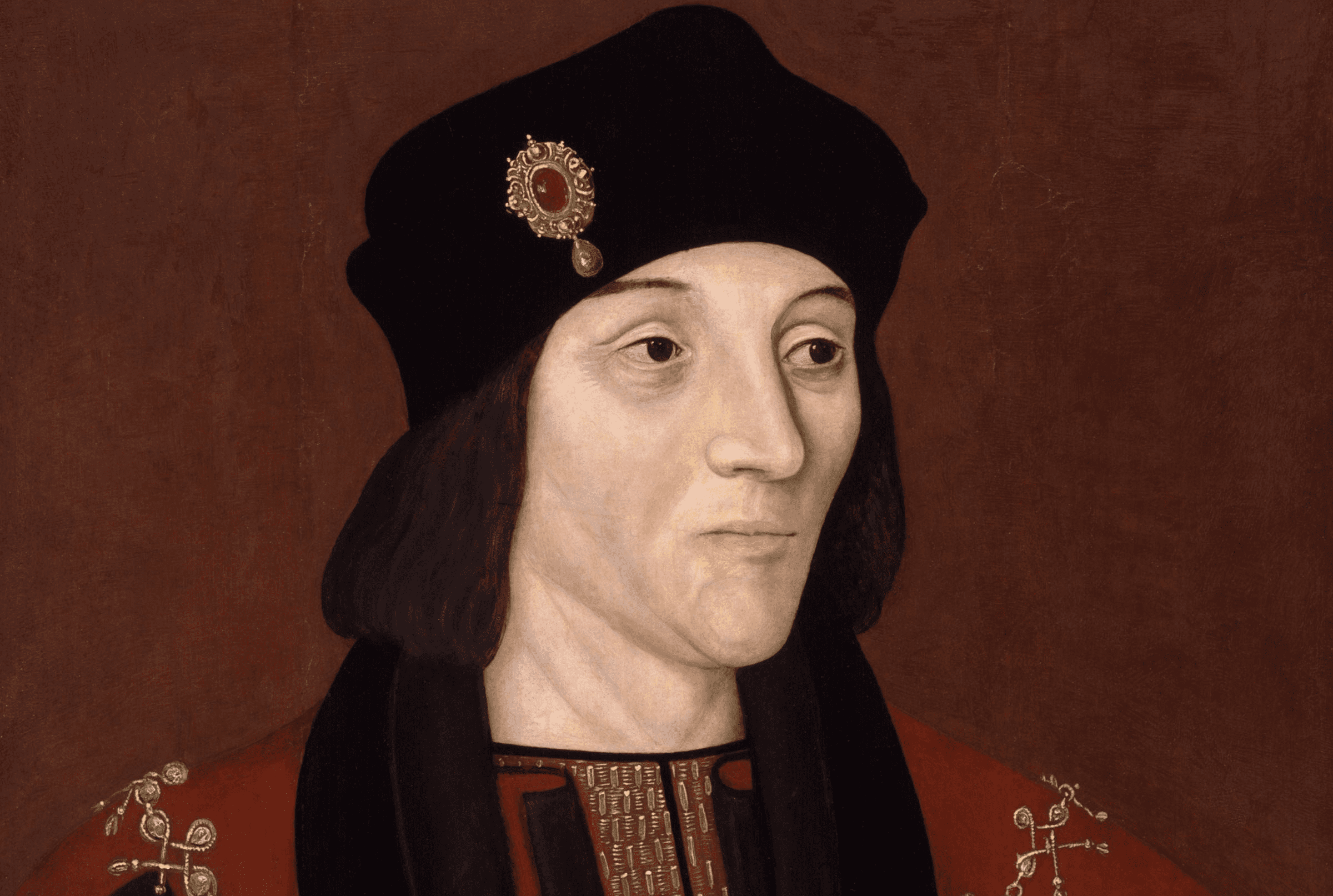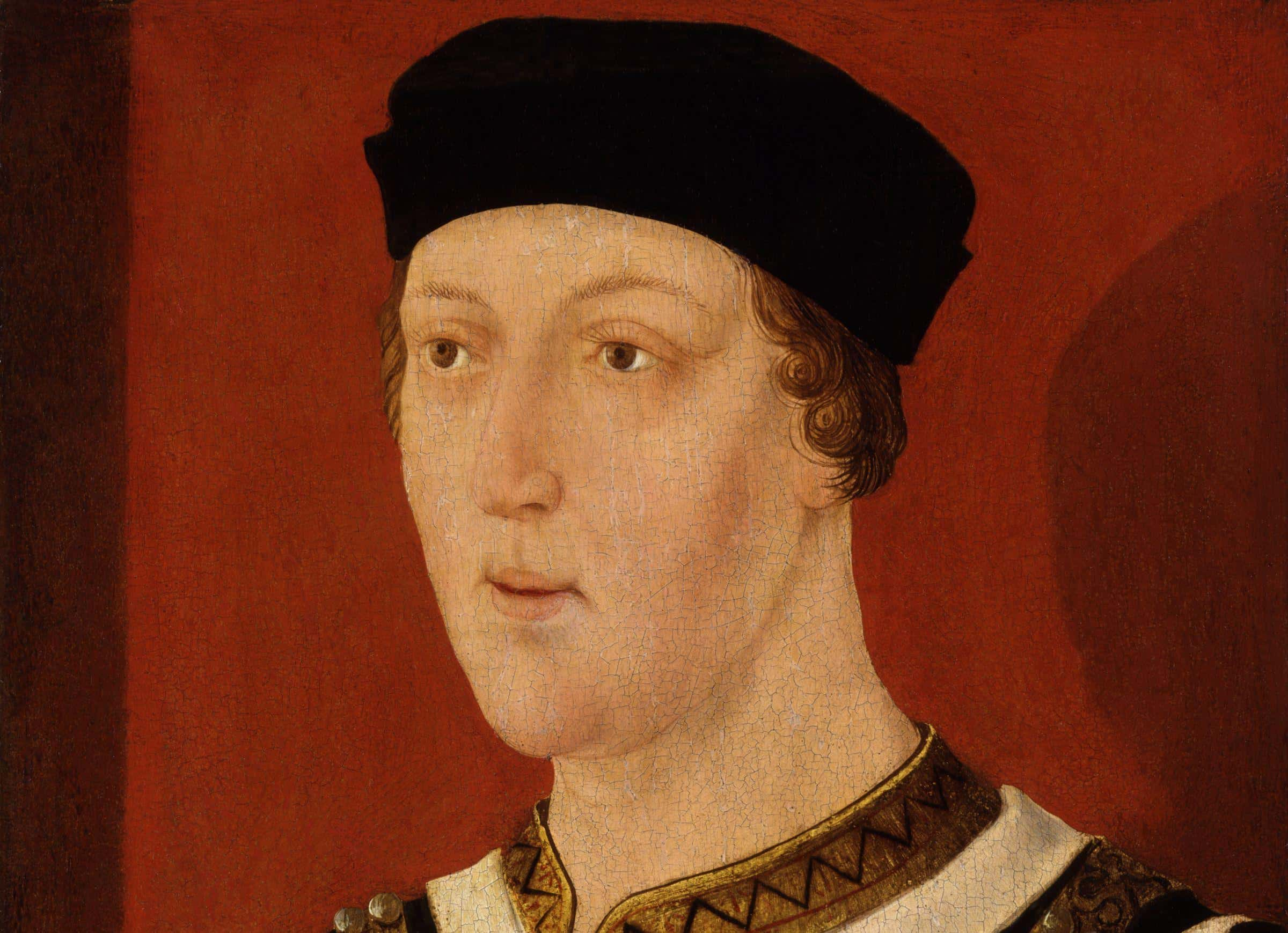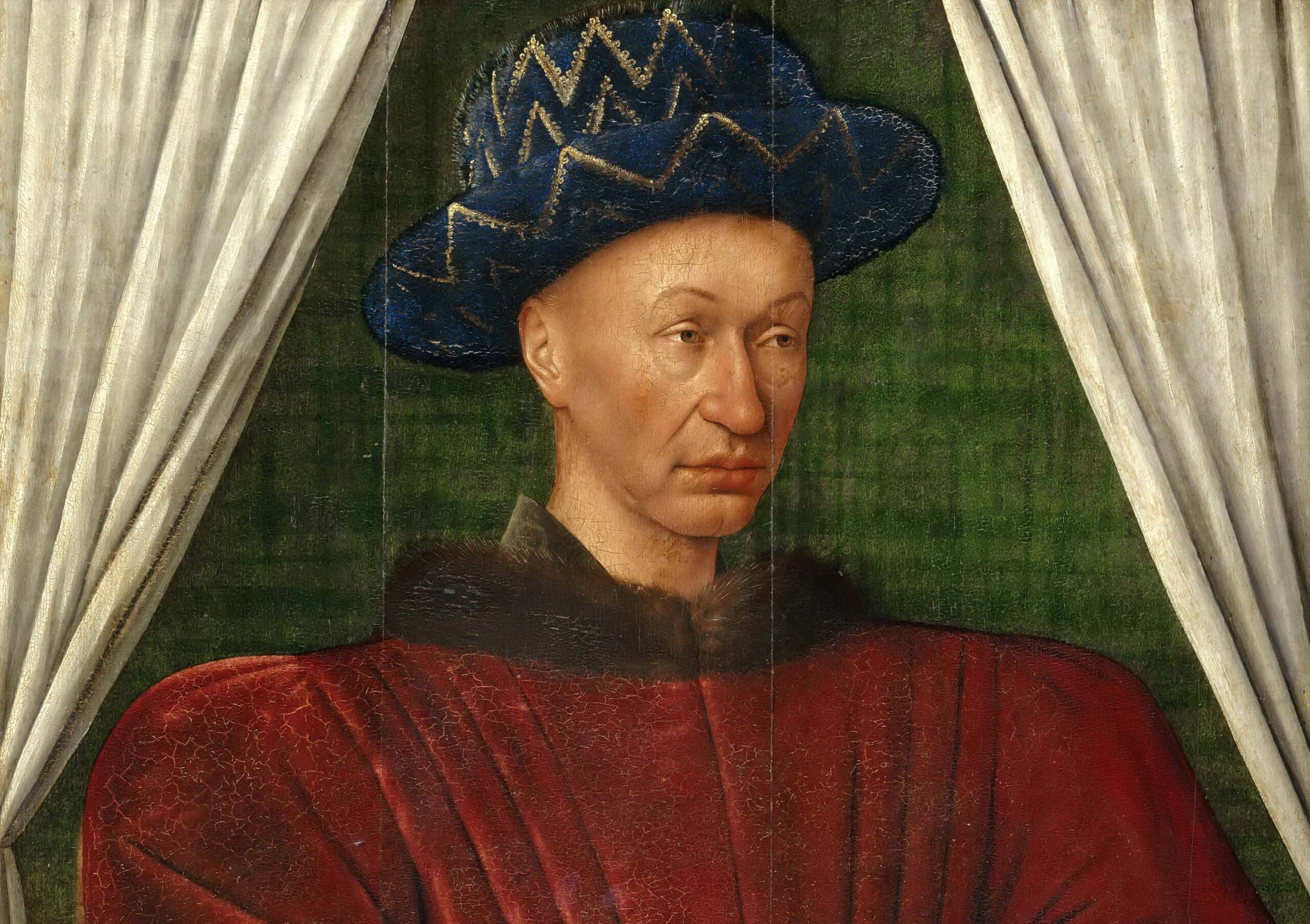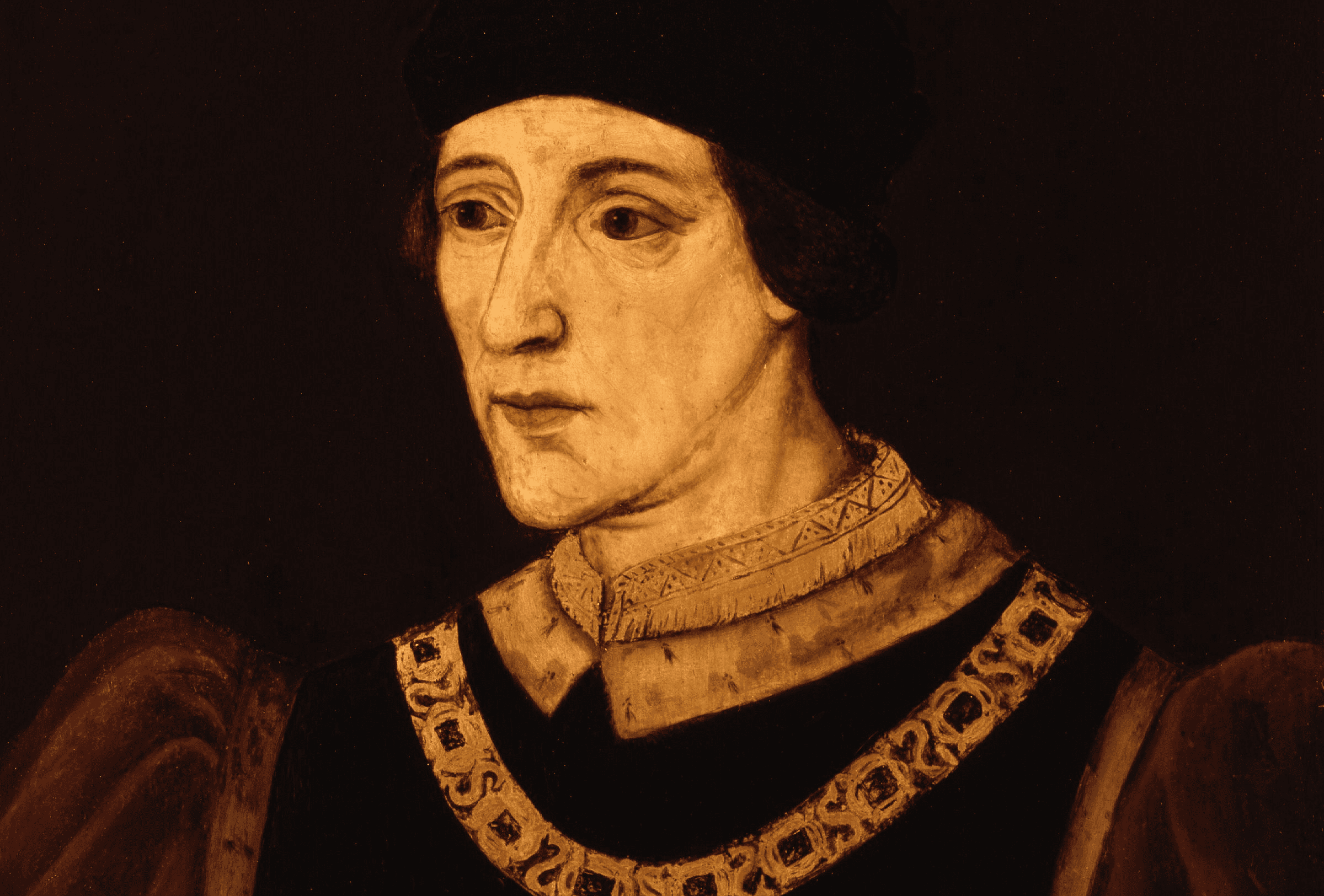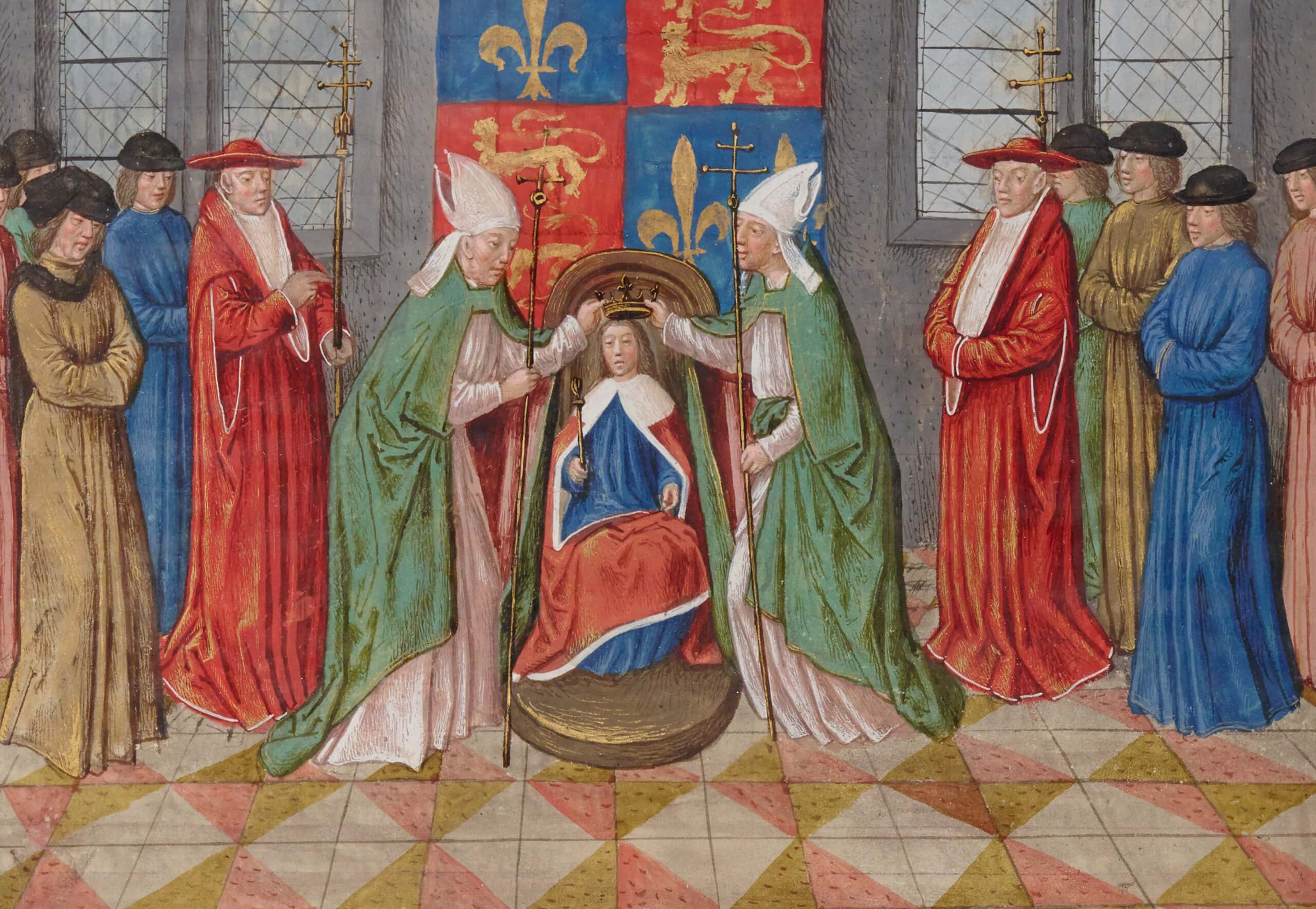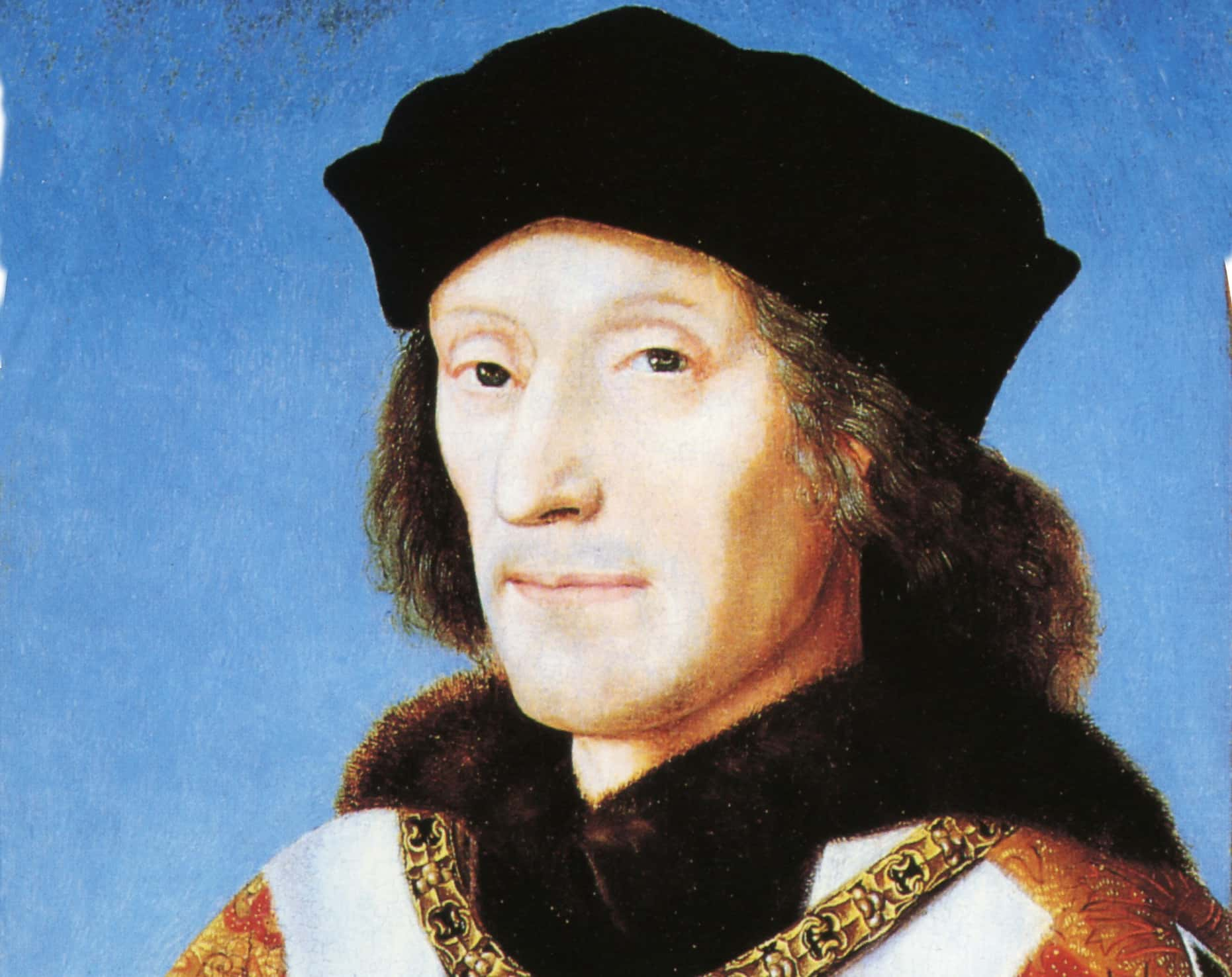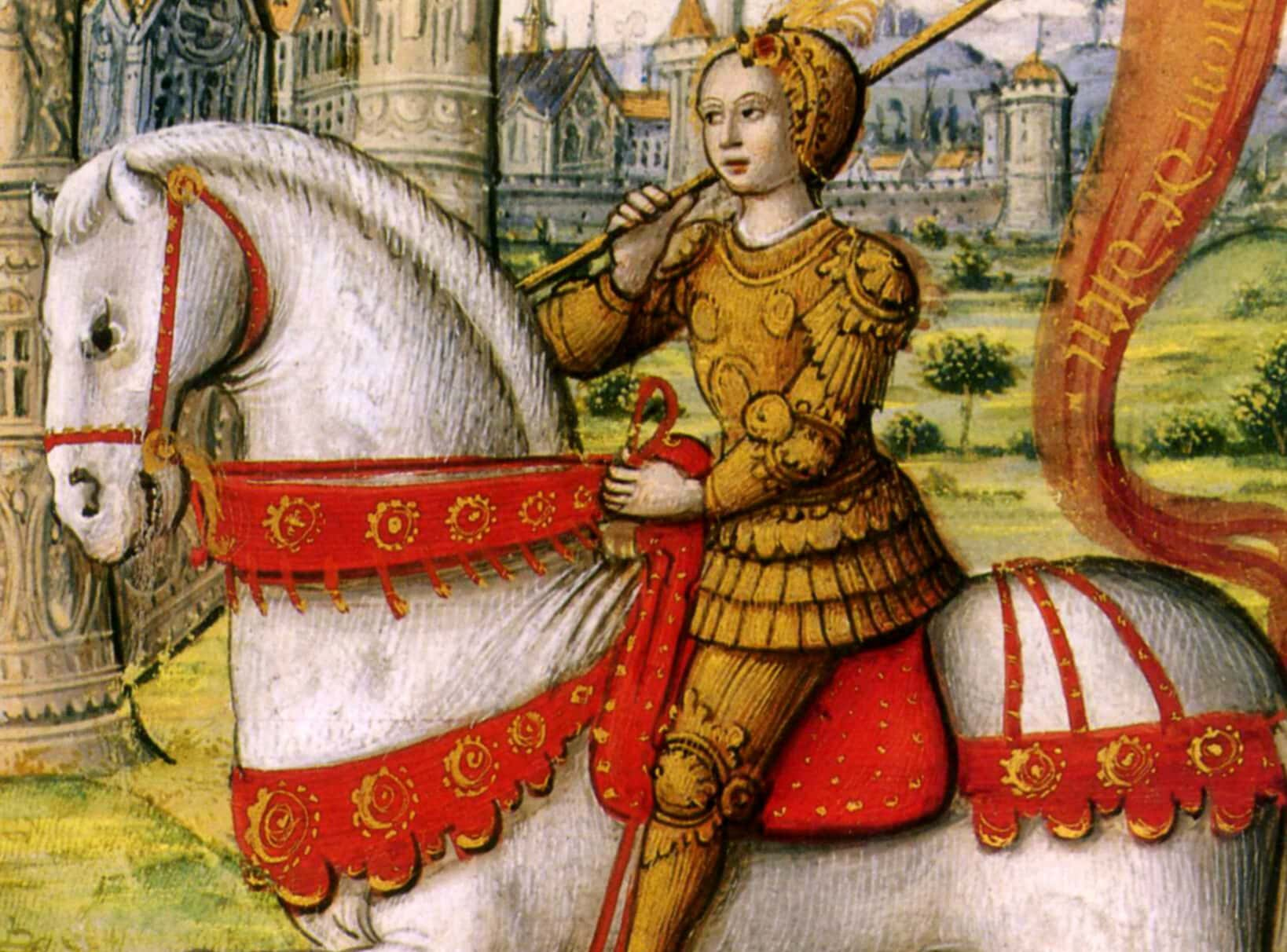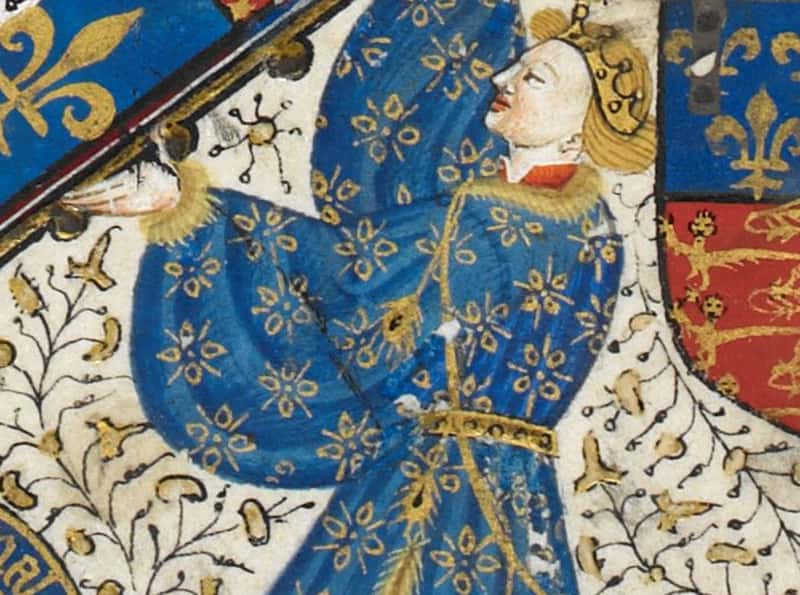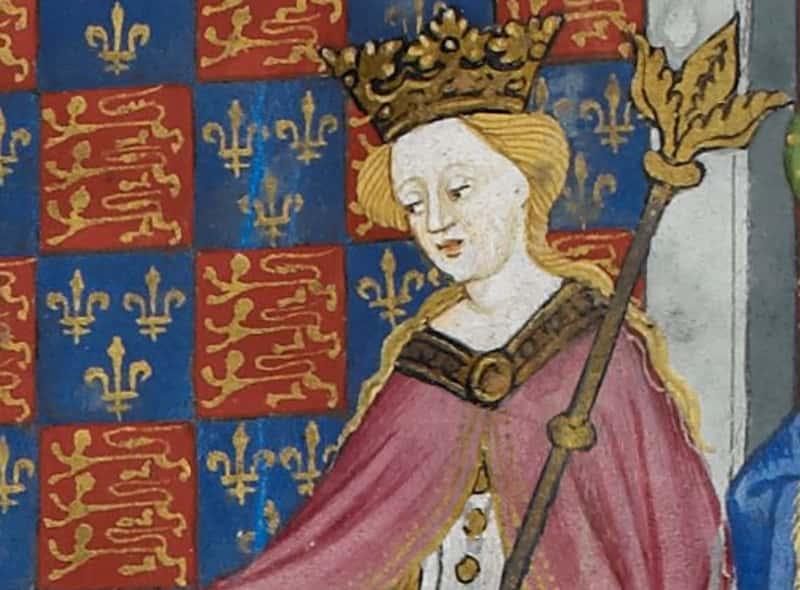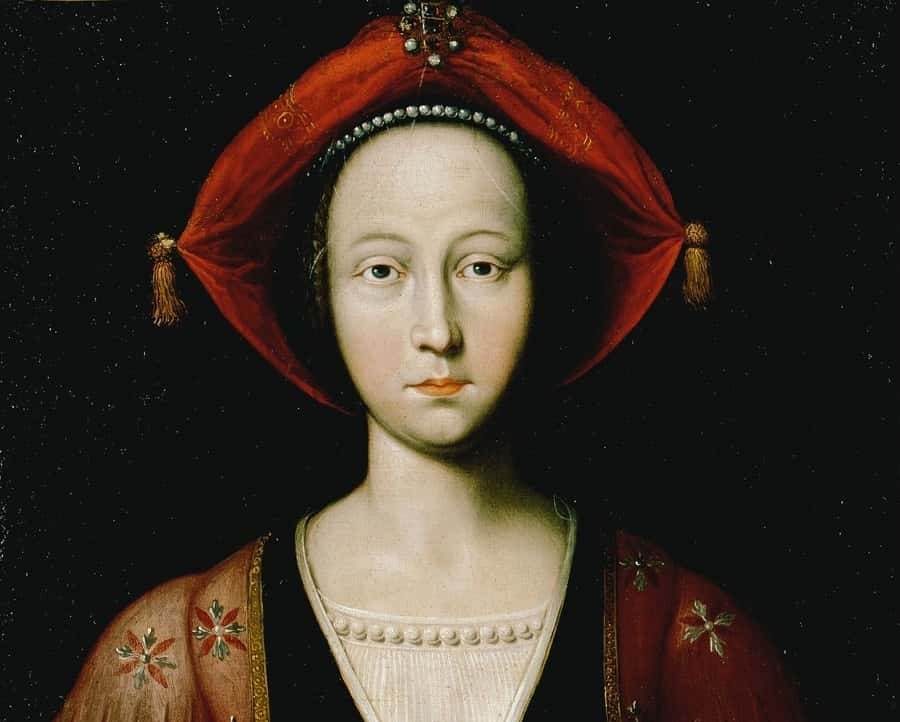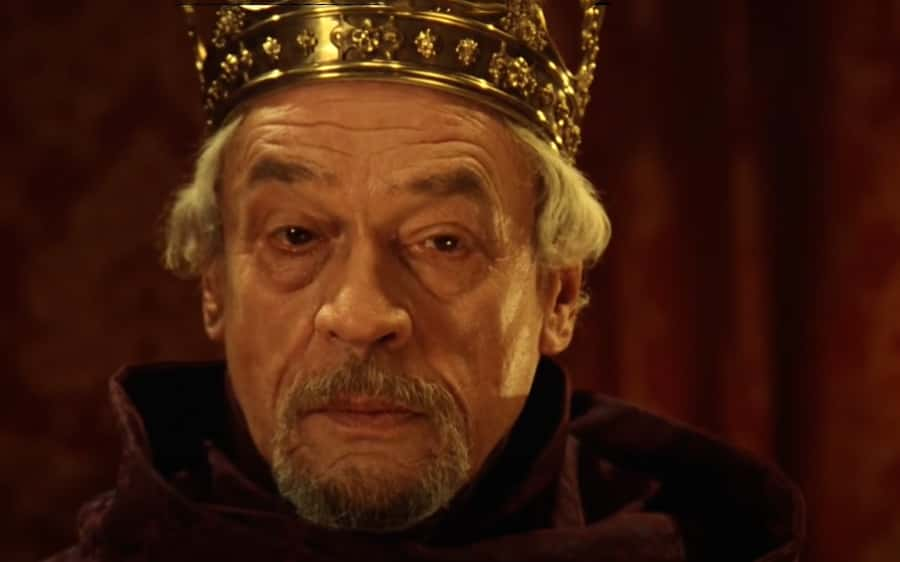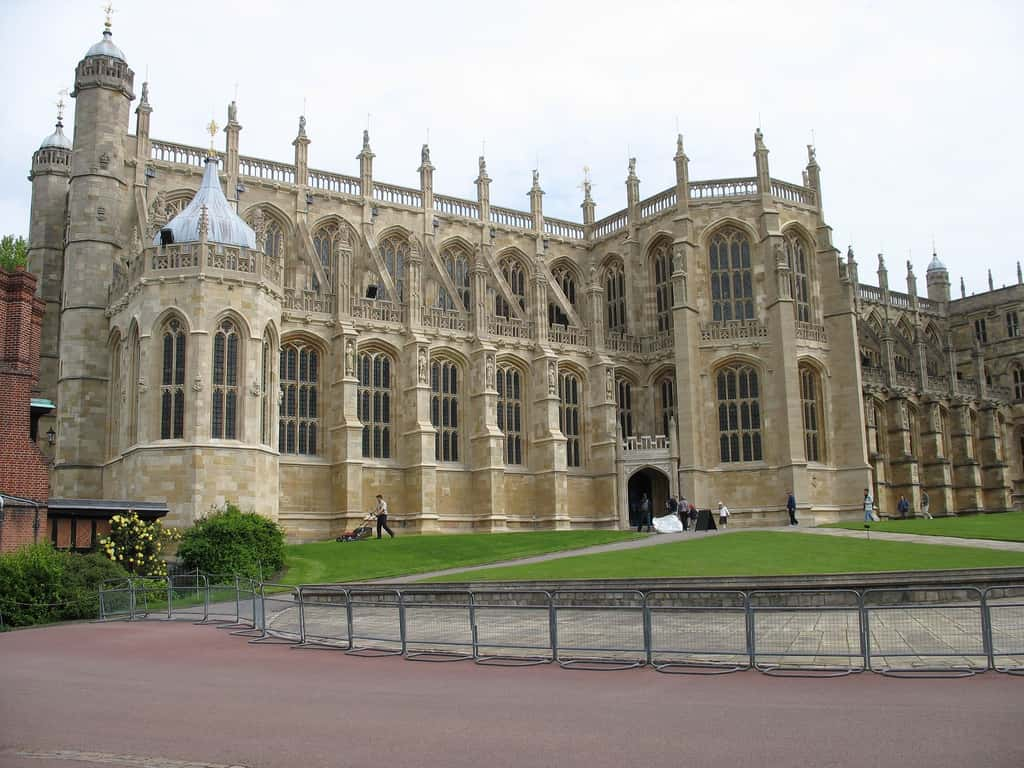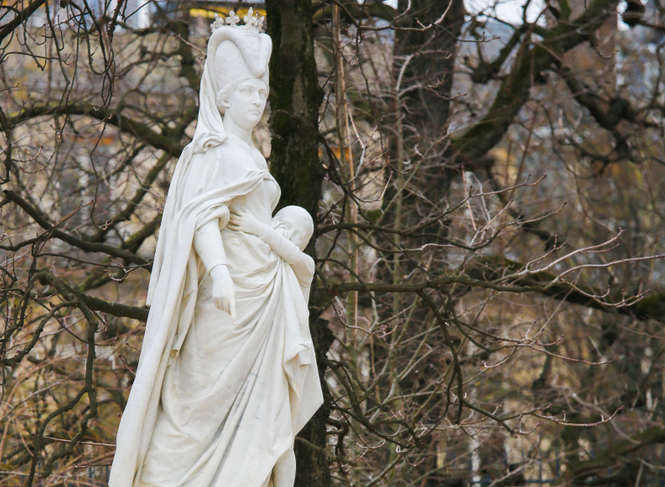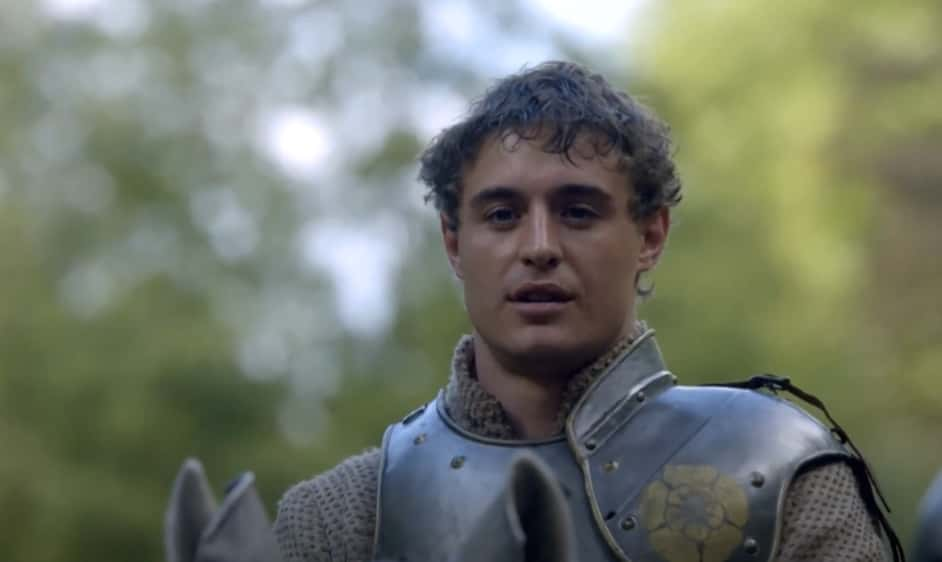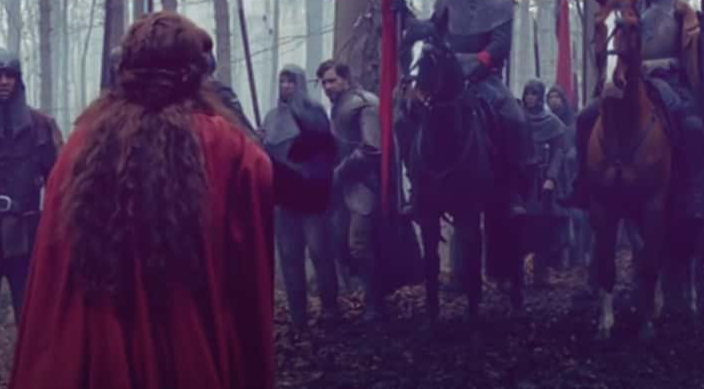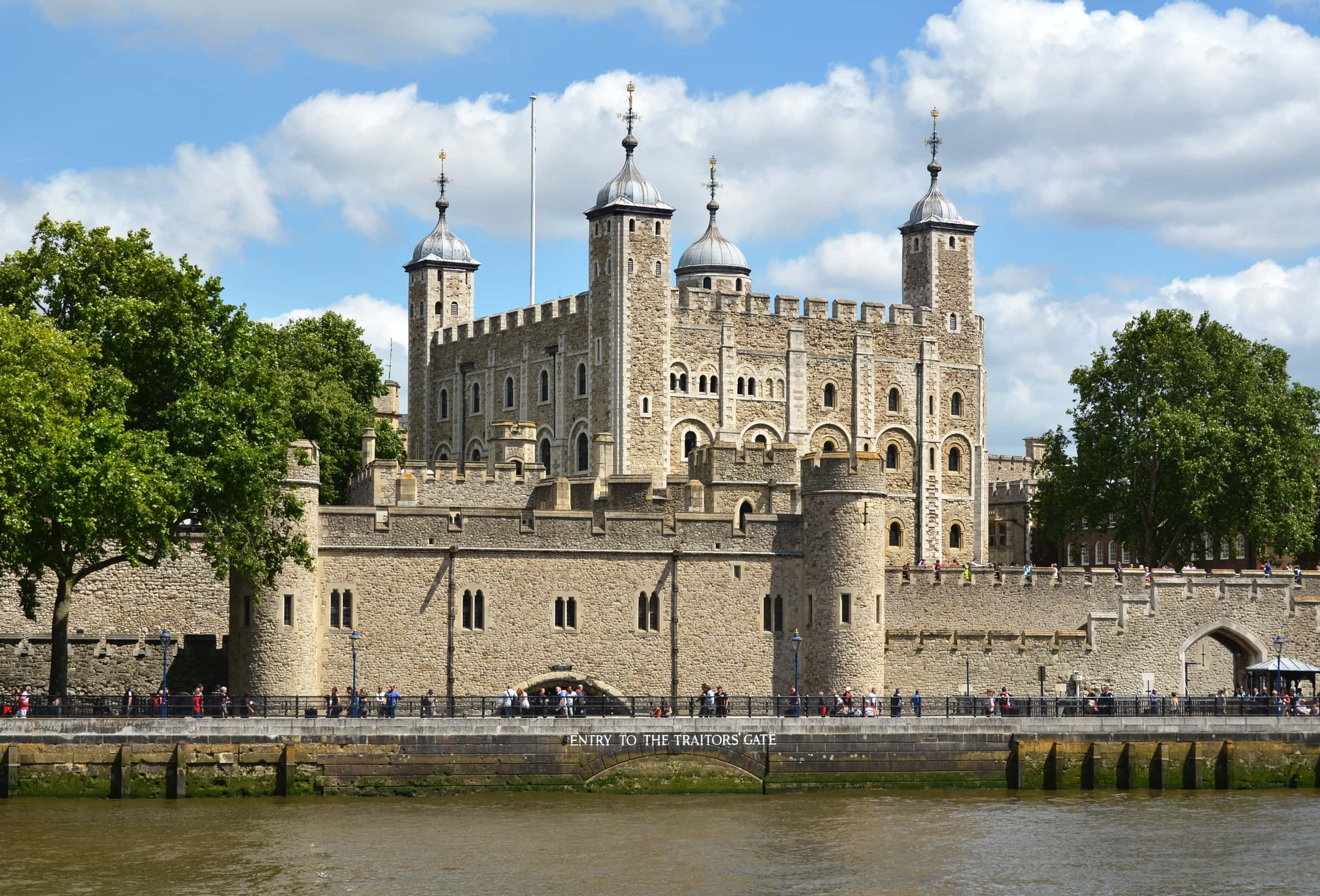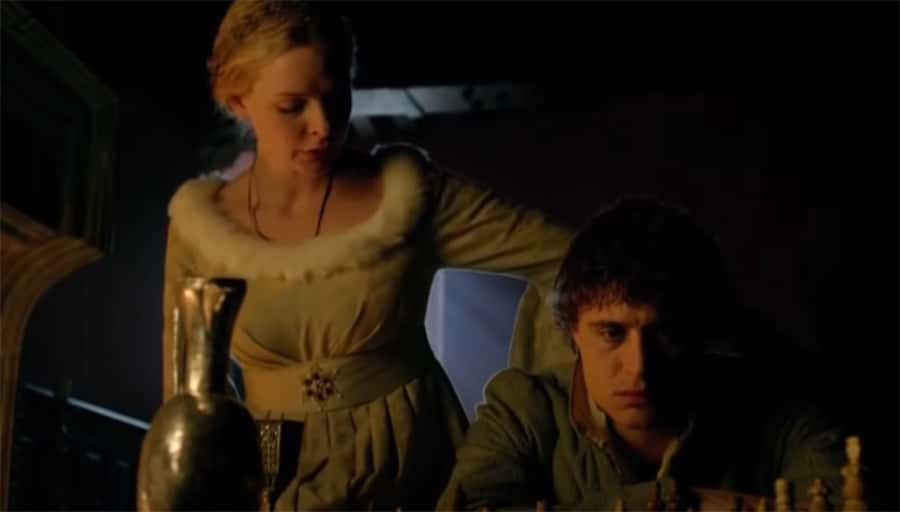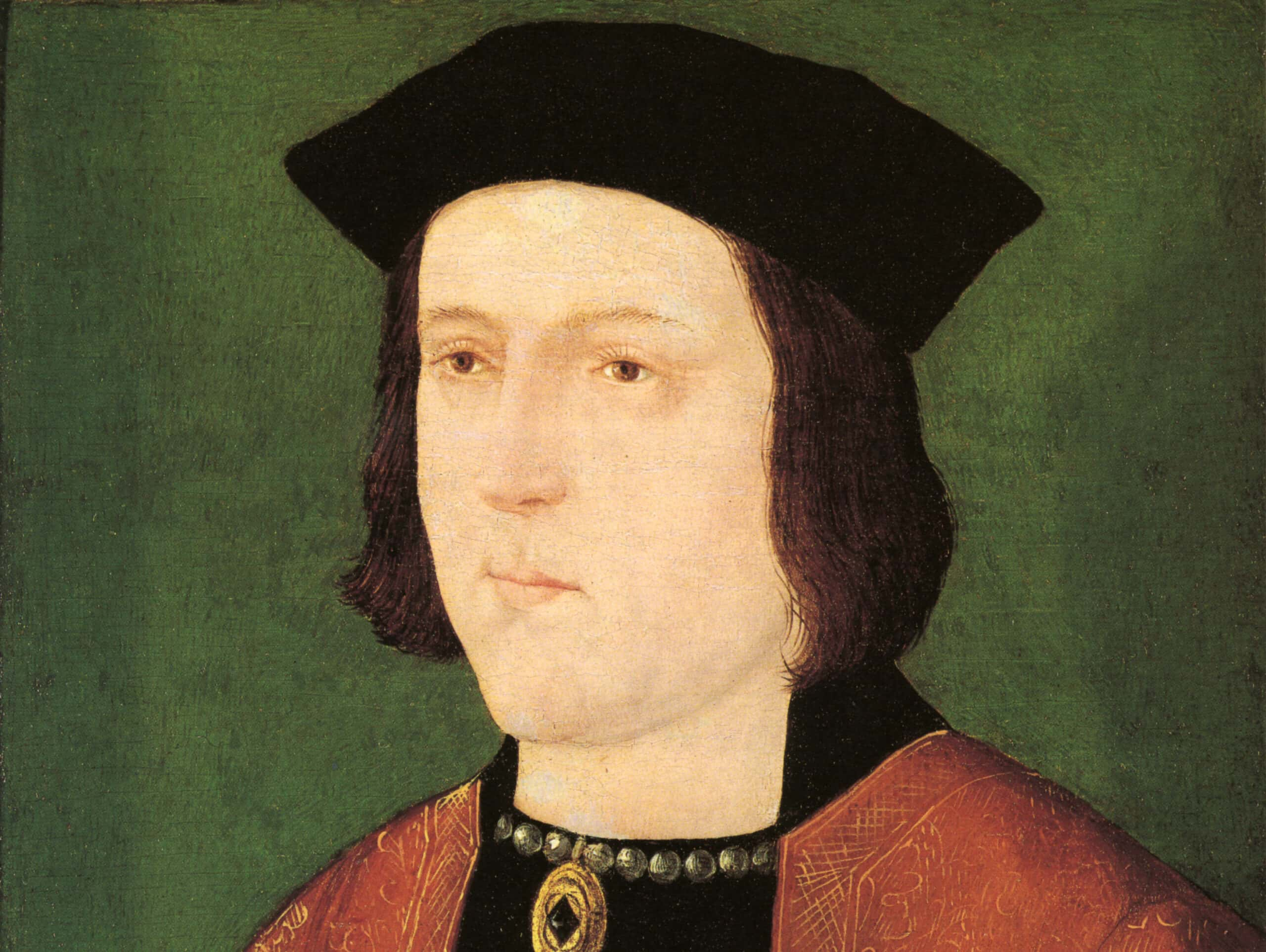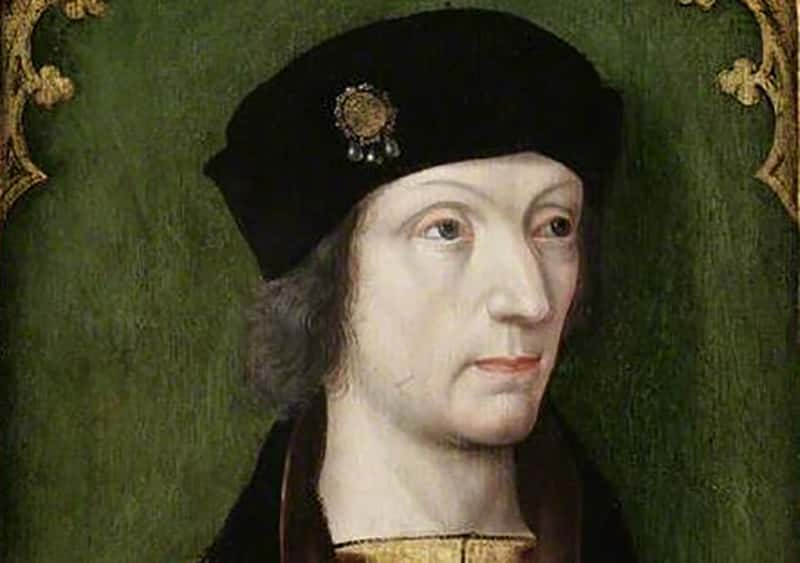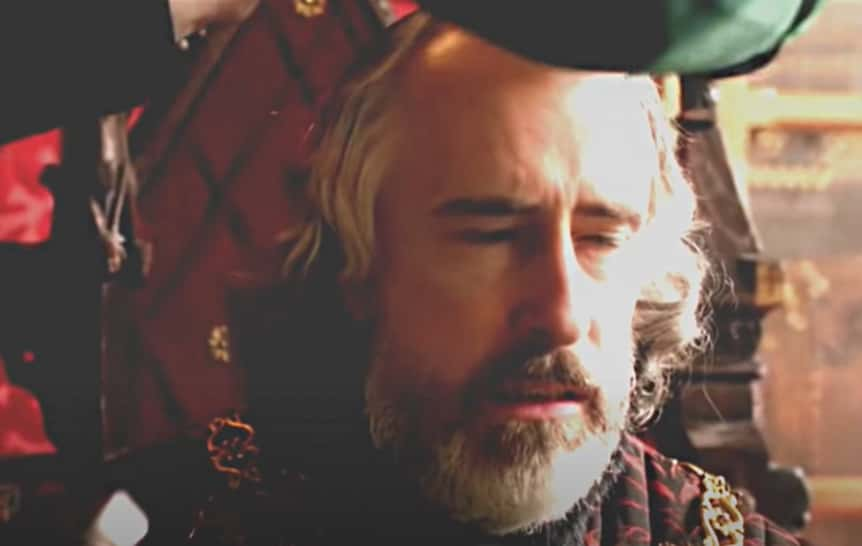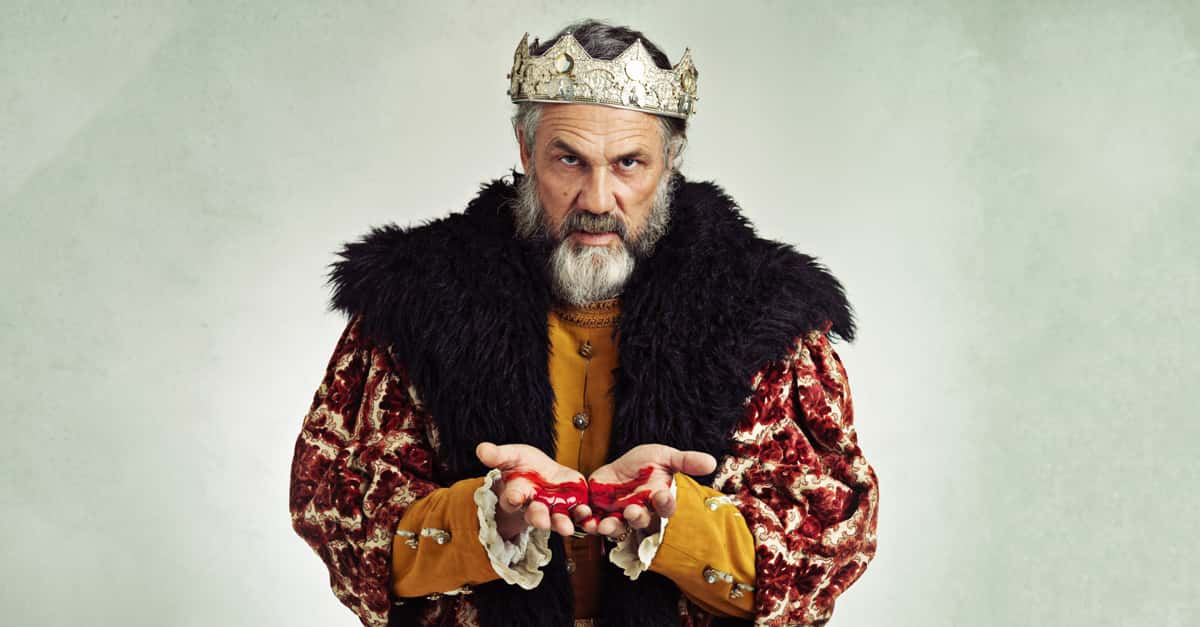Some people just weren't born to rule—and Henry VI was one of them. From his tragic childhood to his tumultuous reign and violent end, the feeble and weak-minded Henry managed to send England into a complete tailspin, starting one of the most brutal conflicts in the country's history. So where did it all go wrong? Why was Henry such a terrible king? Discover the dark history of England's most unfortunate monarch.
1. His Father Was a Great Warrior King
Henry VI was born with extremely large shoes to fill. His father was King Henry V, one of the most legendary warrior kings in history. Henry V was brutal, cunning, and ruthless, and his reign saw England become more powerful than it had ever been—but it was all about to fall apart.
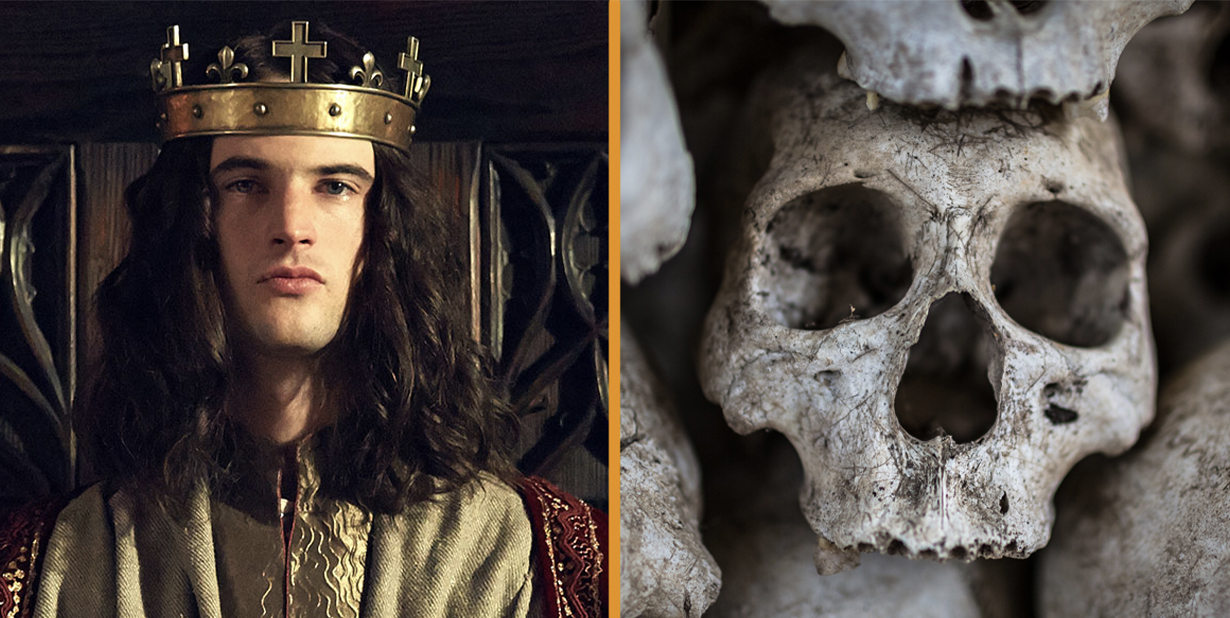
2. Henry V Was Nearly King of England AND France
The Hundred Years' War against France was raging during Henry V's reign, and he was quick to take advantage of it. With legendary victories like at the Battle of Agincourt, Henry V came within a hair's breadth of taking all of France for himself. Had he lived, the two kingdoms would likely have become one, and the entire history of Europe would have been completely different—but fate had other plans in store.
3. His Parents Fell in Love at First Sight
Henry rampaged across France, taking massive swaths of the country for himself. He was so unstoppable, he got the King of France to name him heir to the throne just to stop his warpath. While on campaign, he also caught a glimpse of the French king's stunning daughter, Catherine of Valois. Marrying a French princess was a shrewd political move—not to mention the fact that her beauty left Henry absolutely floored.
He married her soon after, and they gave birth to a son, the future Henry VI. Henry, and England with him, was on top of the world. Then in an instant, everything the warrior king fought so hard for turned to dust.
4. Everything Fell Apart in an Instant
Henry V was all set to become the King of France. All he had to do was outlive the feeble King Charles VI...but he didn't make it. Henry was only 35 years old when he suddenly fell ill with a painful illness. In mere days, the king went from being a vital and formidable man, to a lifeless body. The king was dead—and England's fortunes went with him.
5. His Father Was So Close...
Henry V missed out on becoming King of France by a measly two months. King Charles VI passed almost right after him. Instead, the infant Henry VI became king. No one realized it at the time, but that was probably the worst thing that could have possibly happened for England.
6. He Never Even Met His Father
Henry V never even met his son. Henry VI was just a few months old when his father croaked and he became the youngest King of England ever. When his granddaddy Charles VI passed soon after, this swaddled babe found himself king of not just one, but two countries. In name, he was the most powerful person on Earth. But Henry VI was just an infant—and while he came of age, the most ruthless nobles in Europe kept busy by playing the game of thrones.
7. He Never Really Knew His Mother
Henry V's demise devastated his widowed Catherine of Valois, and she took solace in her beloved child, Henry VI. However, her boy was about to be ripped from her grasp as well. The English nobles didn't trust the French princess to begin with, and once the king was gone, they'd had enough. Afraid she'd influence the future-king against them, they kept her away from her child as much as possible. Henry VI spent most of his childhood in the care of various English aristocrats, with only limited contact with his mother.
8. He Was King of France...But Not Really
Though Charles VI had promised France's throne to Henry V, the warrior king's demise changed everything. Technically, Henry VI should have become king, but the French weren't about to let a squalling infant claim the crown—especially not an English one. The French were quick to ignore the promise and name Charles VII King of France. Scrambling, the English named their own Henry VI King of France in opposition.
Unfortunately, the next few years would prove that Henry VI was not the man his father was. Soon enough, everything began falling apart.
9. He Achieved Something No Other English King Ever Would
Henry VI holds two important distinctions in history: He's the youngest King of England ever, and the only King of England to become the King of France also. Pretty cool if you ask me...but it was all downhill from there.
10. He Became King in a Dark Time
In Henry's defense, he took the throne at a pretty rough time in England. His father's campaigns had taken a toll on the English economy, leading to a depression known as the Great Slump. Plus, having squabbling nobles run the country for 16 years didn't exactly help. The country needed a strong leader to lead it through this difficult time—and Henry was probably the worst possible man for the job.
11. His Still Mother Shaped History
Henry's mother Catherine saw her star fall extremely quickly. One day, she was the Queen of England and set to become the Queen of France as well. The next, she was a widowed stranger in a foreign land, kept away from her child and away from influence. She found solace in the arms of a man named Owen Tudor. Sound familiar? Though Catherine and Tudor were two nobodies in their day, their union would form the seed of one of the most powerful dynasties in English history...
12. She Seeded a Legendary Dynasty
Turns out, Catherine would get the last laugh. While her son Henry VI didn't exactly thrive as king (as you'll soon see), her grandson Henry Tudor would ultimately end up as the victor of the Wars of the Roses. His line would see one of England's worst-ever rulers, the infamous Henry VIII, and one of its greatest, Elizabeth I.
13. He Got Off to a Bad Start
Even as a child, Henry VI was feeble, shy, and nervous. Unlike his father, bloodshed terrified him, and his naivete made it easy for just about anyone to take advantage of him. If you thought the English court was messy before he became king, things only got worse once he took the throne. He was prone to taking favorites, and the nobility quickly became divided and tense.
But while things at home were started to look pretty darn shaky, that was nothing compared to what was happening across the English Channel.
 The Hollow Crown (2012– ), BBC
The Hollow Crown (2012– ), BBC
14. He Started Losing land Almost Immediately
From the moment Henry V left this world, the French set about reclaiming the lands he'd conquered. With Joan of Arc leading the French to victory, English holdings in France had been steadily shrinking for years. When Henry VI took over, he did nothing to help matters. Fighting scared him, and he listened to anyone who suggested that he seek peace with France.
Many in England were furious that their new king would so readily give up the lands they fought tooth and nail for, and Henry soon found himself with some powerful enemies...
15. His Enemies Were Extremely Powerful
One of the loudest voices who spoke for fighting in France was Richard, Duke of York, one of the most powerful men in England. Henry ignored the Duke's protests—but he would live to regret it.
16. His Marriage was a Good Thing at Least...
Though Henry's failure in France is a dark stain on his legacy, at least it led to the one good thing in his life: His pursuit of peace led to his marriage to the gorgeous and cunning French princess Margaret of Anjou. Henry was absolutely smitten, and he was willing to do anything to marry her—though the cost would turn out to be painfully high.
17. But He Paid a Huge Price for It
Henry's supporters suggested that he marry Margaret, and he was all too desperate to agree. He just needed the approval of King Charles VII of France, who was no fool. Charles was a far more effective ruler than Henry, and he made sure to take the English king to the cleaners. Normally, a marrying a king meant that the bride's family would cough up an extravagant dowry—but not in this case.
Charles not only got Henry to waive the dowry, but he actually got the English king to give him the extremely valuable French province of Maine. Henry would do anything to avoid conflict, so he agreed—a decision that would come back to haunt him.
18. He Tried To Keep a Shameful Secret
Henry and his advisors were well aware that giving up Maine would be extremely unpopular. So, they kept that little detail from the English public when they announced the marriage. But people were going to notice sooner or later—and when they did, they were absolutely furious. In just a few years, they went from having a king who conquered much of France to one who gave up that land for free.
If people disliked Henry and his cronies before, they utterly hated them now—and it was only about to get worse.
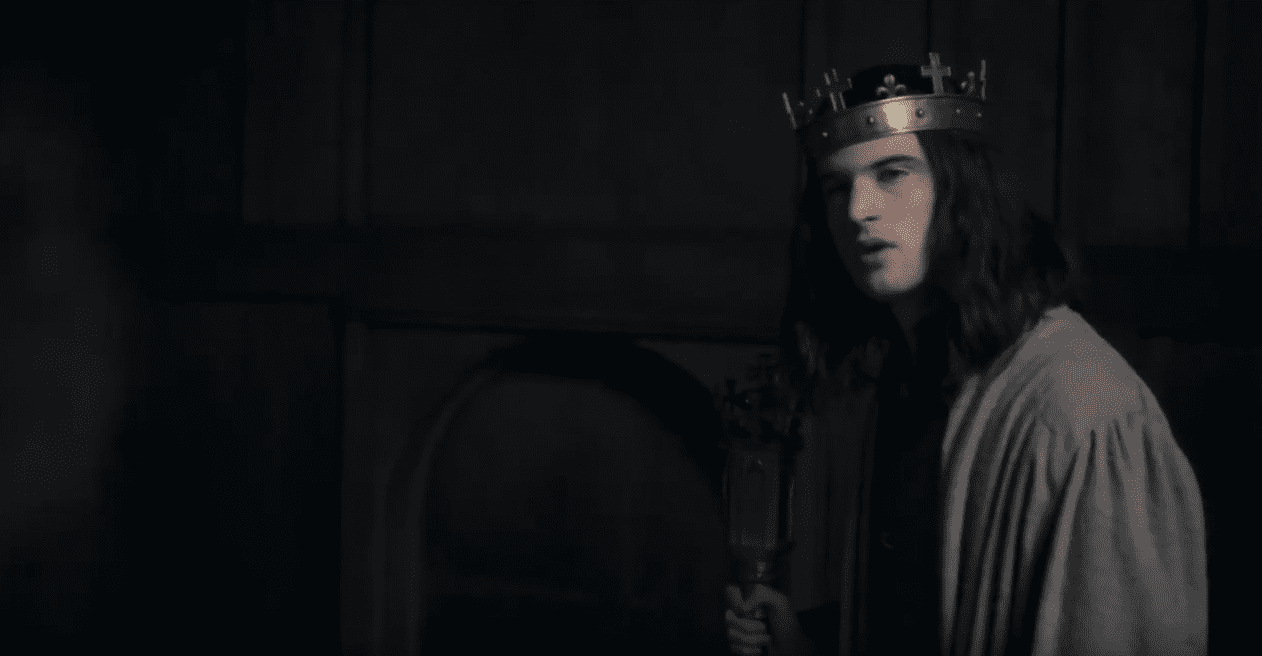 The Hollow Crown (2012– ), BBC
The Hollow Crown (2012– ), BBC
19. Margaret Lannister
Many people hated the beautiful Margaret of Anjou, but everyone respected her. She was intelligent, capable, and above all else, ambitious. In fact, when writing A Song of Ice and Fire, Margaret inspired George R.R. Martin to create one of his most cold-blooded characters: Cersei Lannister. The only difference is, Cersei was fictional—while Margaret's dark deeds were all too real.
20. She Learned From the Best
Margaret took great inspiration from her mother Isabella, the formidable Duchess of Lorraine. When a rival took Margaret's father captive, Isabella personally led an army to rescue her husband. Afterward, Isabella would continue to take an active role in ruling her husband's domain. It's no surprise that Margaret learned to fight for what was hers.
Henry VI was lucky to have her—without his wife by his side, he'd have been toast in an instant.
21. He Was Mad...And Prudish
Unlike so many other English kings, Henry VI never took a mistress. Maybe Henry loved no one but Margaret, but others have suggested a slightly stranger reason: It was long rumored that Henry had a hopeless phobia of bare bodies. According to one chronicler, Henry literally ran away in fear after a lord brought a gang of bare-chested ladies to a Christmas celebration as a dirty joke.
 The Hollow Crown (2012– ), BBC
The Hollow Crown (2012– ), BBC
22. He Needed a Little...Coaching
It took nearly a decade of marriage for Margaret to get pregnant, and most people place the blame for that one on Henry's, ahem, inability in the bedroom. The king apparently had absolutely no idea what he was doing, and people noticed. Reportedly, some of the couple's most "trusted" attendants eventually joined them in the bedroom to ensure that they did the deed properly.
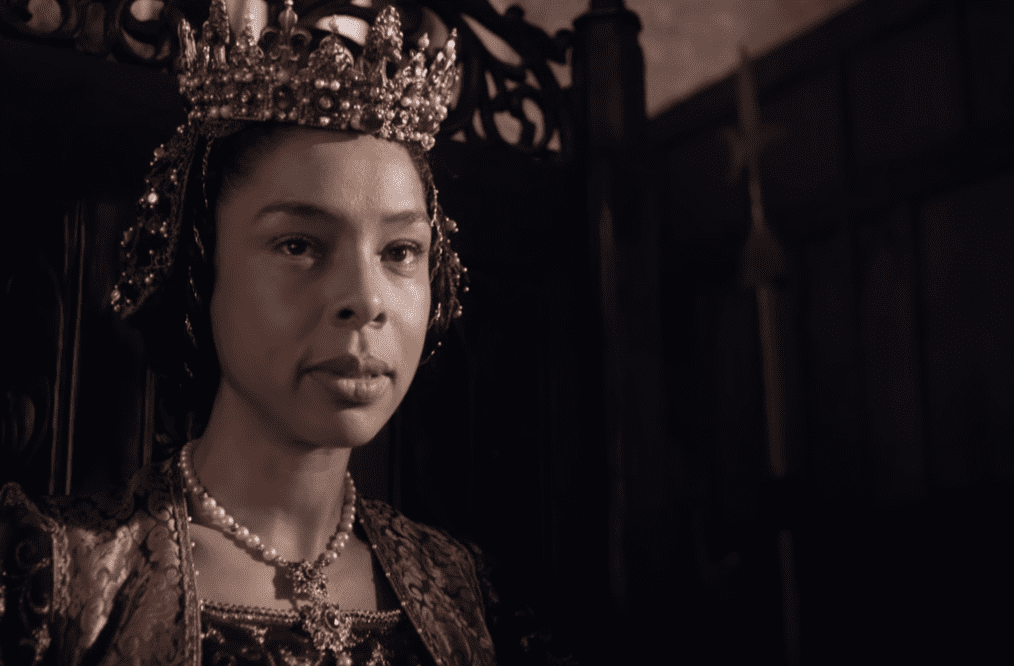 The Hollow Crown (2012– ), BBC
The Hollow Crown (2012– ), BBC
23. He Loved His Wife Dearly
They may have had their fair share of political struggles, but by all accounts, Henry and Margaret had a tender relationship. The couple once kicked off New Year celebrations by receiving their gifts in bed, where they lay in their PJs and pillows all morning. They were like the John and Yoko of their day—and sadly, their union met a similarly tragic end.
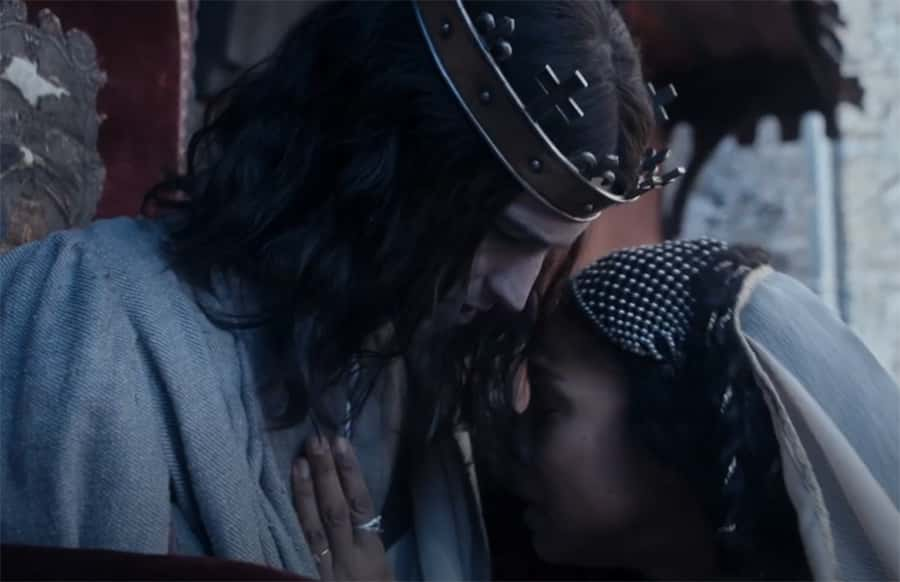 The Hollow Crown (2012– ), BBC
The Hollow Crown (2012– ), BBC
24. He Had a Weird Way of Showing His Affection
In his more lucid years, a young Henry greeted his bride by disguising himself as a squire and “unmasking” his royal identity to her in a show of courtly love and pageantry. But this was during the all-too-brief good days. Soon enough, their entire world would be thrown into chaos.
 The Hollow Crown (2012– ), BBC
The Hollow Crown (2012– ), BBC
25. He Let England Fall Apart
If you thought that losing Maine was rock bottom for Henry VI, you'd be way off—he could sink way, way lower. The following years saw England completely go to the dogs. The economy didn't improve, corruption became rampant in every level of government, and the countryside fell to anarchy as law and order completely broke down.
The people were angry—and it was only a matter of time before they did something about it.
 The Hollow Crown (2012– ), BBC
The Hollow Crown (2012– ), BBC
26. His Friends Were Utterly Hated
The Duke of Suffolk was one of Henry's favorite advisors and one of the most hated men in England. Notably, Suffolk was the driving force behind seeking peace in France. He'd been the one to suggest marriage to Margaret of Anjou, and he'd been quick to agree that Maine was a fair price to pay. While Henry loved him, many nobles considered Suffolk's actions outright treacherous.
Henry did everything in his power to protect Suffolk, but he couldn't prevent his friend from meeting his dark fate.
27. He Caved to Pressure
A more effective king might have been able to protect Suffolk, but Henry was pretty much useless. He powerlessly watched as Parliament impeached Suffolk in front of an angry mob calling for the man's blood. Realizing that his friend's life was in danger, Henry bent to the mob's will and exiled Suffolk—but that wasn't good enough for his enemies. They had a much more gruesome sentence in mind.
 The Hollow Crown (2012– ), BBC
The Hollow Crown (2012– ), BBC
28. He Couldn't Protect His Friends
As Suffolk sailed across the English Channel to exile, defeated but alive, his enemies caught up to him. Fishermen found his body washed up on the beach at Dover not long after. His demise shocked England—and proved to everyone just how much the king's word meant. The writing was on the wall: Henry VI's days as king were numbered.
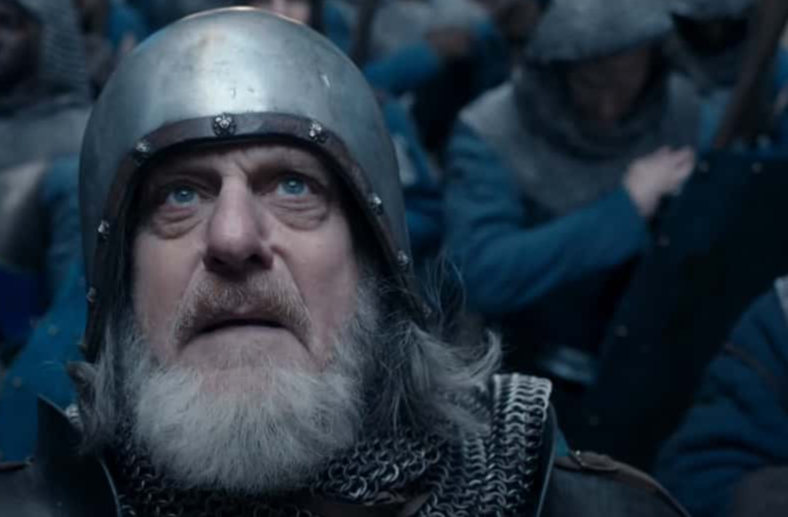 The Hollow Crown (2012– ), BBC
The Hollow Crown (2012– ), BBC
29. He Founded Some Schools, At Least
Though Henry was a catastrophic failure of a king, it's not like he didn't accomplish anything. He hated fighting, but he was very interested in other matters, such as religion and education. He actually founded Eton College and King's College, Cambridge, two legendary institutions that stand to this day. But this was not a time for men of letters—it was a time for men of war, and war was coming.
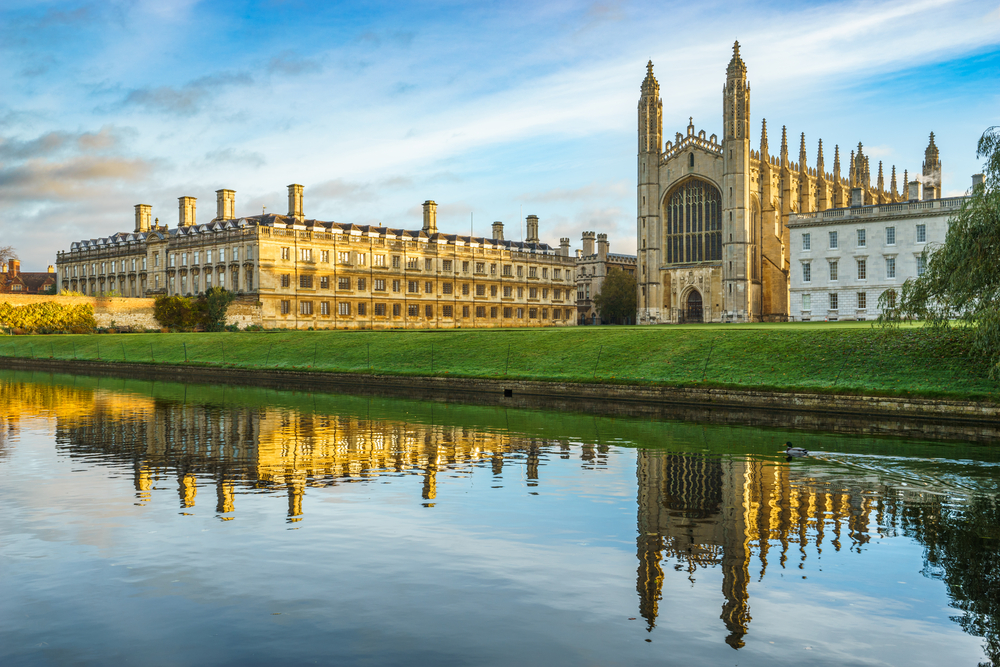
30. He Picked The Worst Person to Lead His Armies
Eventually, Henry decided to fight for his territories in France, but he still managed to screw it up. He made the hapless Duke of Somerset the leader of the English forces, which turned out to be a huge mistake. Somerset, who had until that point been firmly against fighting in France, made a complete mess of things across the water.
Within a year of taking up the fight, the Duke had lost all of Normandy—the jewel of Henry V's prizes in France. And that was just the start of his screw-ups...
 The Hollow Crown (2012– ), BBC
The Hollow Crown (2012– ), BBC
31. He Saw England Fall to Chaos
Pushed out of France, many beleaguered Englishmen limped back to English shores—only to find there was no money to pay them. Many of these men took to roaming the countryside, raiding villages to keep food on the table. England became a truly scary place to live, and Henry VI was completely incapable of doing anything about it.
And all of that happened before Henry lost his mind. That's when things really got out of hand.
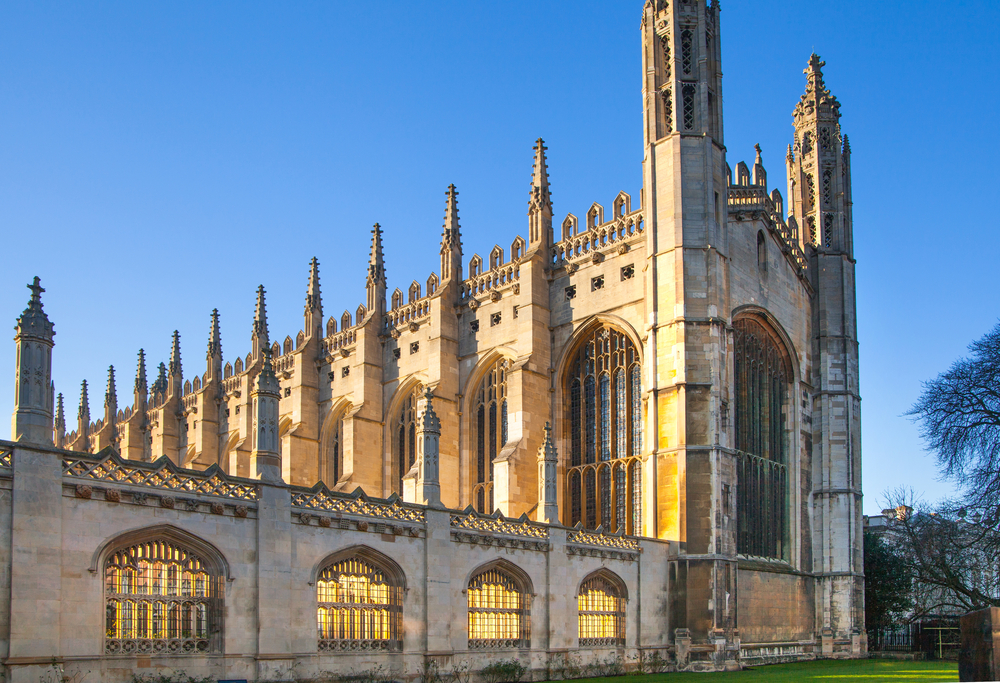
32. He Lost Everything His Father Earned
With Normandy in their hands, the French saw blood in the water and went in for the kill. First, they reclaimed the valuable Duchy of Aquitane, which the English had held for 300 years. The French didn't stop there, either. They kept going until England possessed nothing but the city of Calais in the north. Just a few decades earlier, it seemed like France was set to become just another English province, but Henry VI screwed up so badly that he lost it all in a matter of years.
The loss of Bordeaux was the final nail in the coffin—and when Henry heard about it, his feeble mind finally snapped.
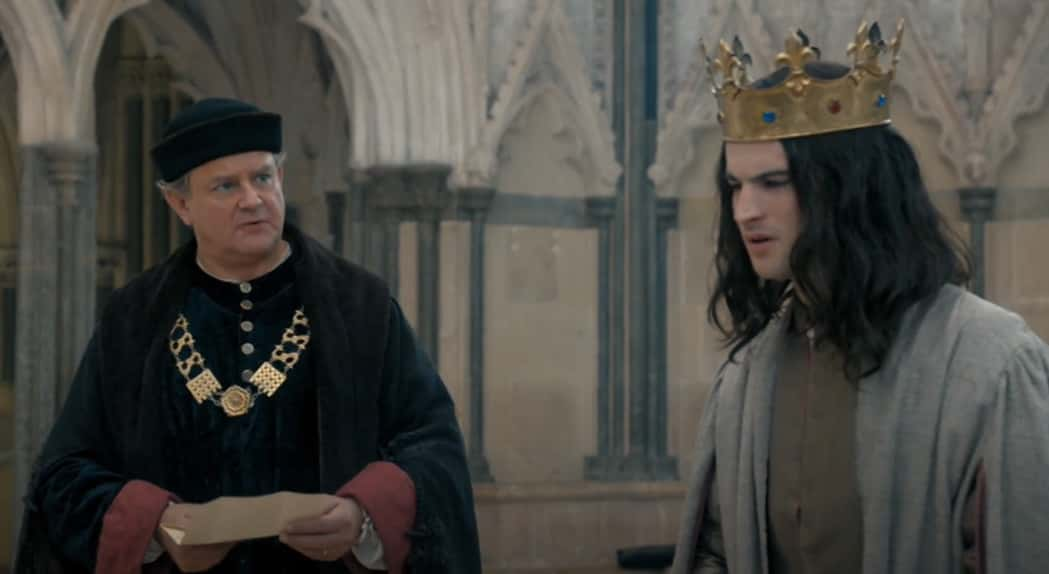 The Hollow Crown (2012– ), BBC
The Hollow Crown (2012– ), BBC
33. They Don't Call Him the Mad King for Nothing
The news that he'd lost Bordeaux quite literally drove Henry insane. He had a total mental breakdown and became completely unresponsive for over a year. After spending the better part of a decade waiting for a child with his wife, even the birth of his son Edward of Westminster couldn't snap him out of it. And through all this time, the situation in England was only getting more and more dire...
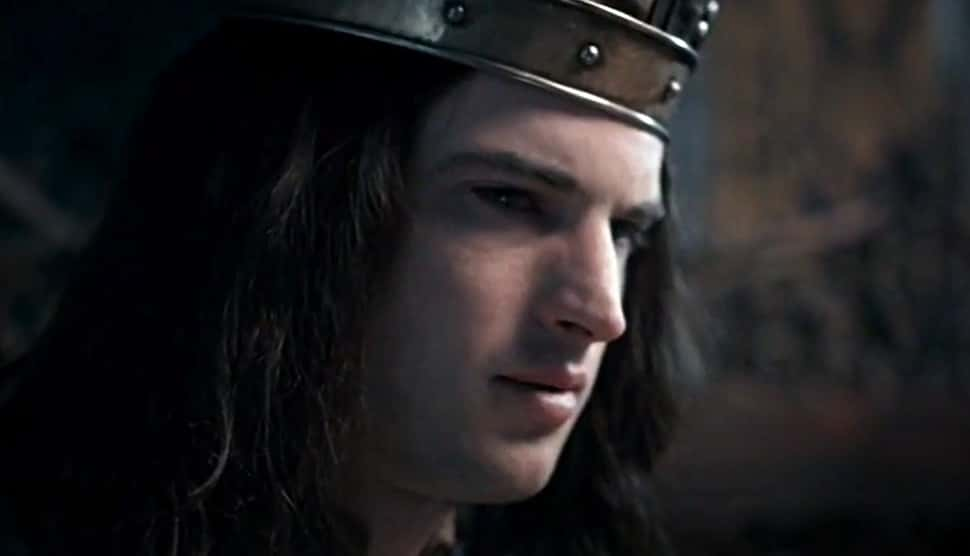 The Hollow Crown (2012– ), BBC
The Hollow Crown (2012– ), BBC
34. He Was Mentally Ill
Modern historians believe that Henry's madness might have been caused by schizophrenia. He may have inherited this from his grandfather, King Charles VI of France, who suffered from similar bouts of insanity throughout his life.
35. His Enemies Didn't Waste Time
While Henry was incapacitated, his enemies began to gather. Richard, the Duke of York, who'd been such a vocal critic of Henry, used his power and influence to get himself named as Protector of the Realm while Henry couldn't rule. York also allied with another of England's most powerful men: Ricard Neville, the Earl of Warwick, better known as the Kingmaker.
Together, these two men set about claiming England for themselves—and they resorted to some pretty devious tricks to do it.
 The White Queen, BBC Drama Productions
The White Queen, BBC Drama Productions
36. They Pushed His Wife Out
York and Warwick weren't stupid, so they realized that their greatest adversary wasn't Henry. It was the ruthless queen, Margaret of Anjou, who posed the biggest threat. So, when York became Protector, he quickly marginalized Margaret, allowing her absolutely no say in matters of state. But that was just the beginning of their plots against her...
 The Hollow Crown (2012– ), BBC
The Hollow Crown (2012– ), BBC
37. He Stood on Shakey Ground
Margaret of Anjou had good reason to be wary of Richard of York. By some interpretations, the Duke actually had a better claim to the throne than Henry himself! If she wasn't careful, she might see everything she'd earned taken from her. But still, with her husband incapacitated, all she could do was bide her time and wait for her moment...
 The Hollow Crown (2012– ), BBC
The Hollow Crown (2012– ), BBC
38. His Enemies Spread Dark Rumors
To plant the seed of doubt in the English people, York and Warwick spread rumors that Margaret was having an affair with the Duke of Somerset, and that her son, Edward of Westminster, wasn't actually Henry's. Not only did this make people distrust their French queen even more, but it also opened the door for someone else to become Henry's heir—namely, York himself.
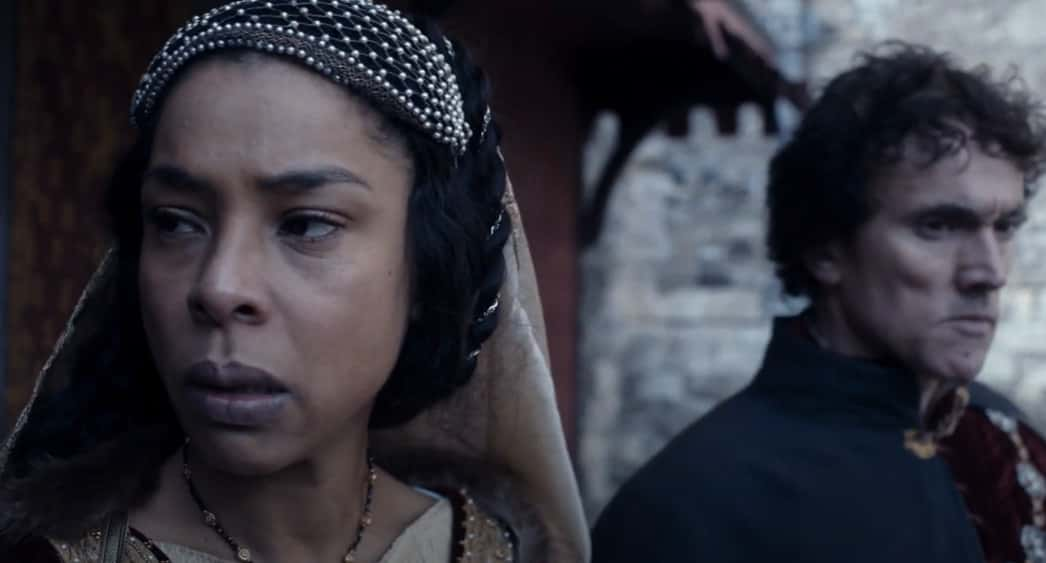 The Hollow Crown (2012– ), BBC
The Hollow Crown (2012– ), BBC
39. Tensions Were High
Now, to be fair, Henry was famously scared of bare bodies, and he wasn't exactly the most virile of men at the best of times. The rumors very well could have been true—but in the end, it doesn't really matter. York and Warwick had made an enemy of Margaret of Anjou—and she was not someone to be crossed lightly.
 The Hollow Crown (2012– ), BBC
The Hollow Crown (2012– ), BBC
40. He Didn't Even Recognize His Own Son
Just how bad was Henry's mental breakdown? When he finally came to, he was utterly astonished to discover that he had a son—even though the boy had been presented to him a year earlier.
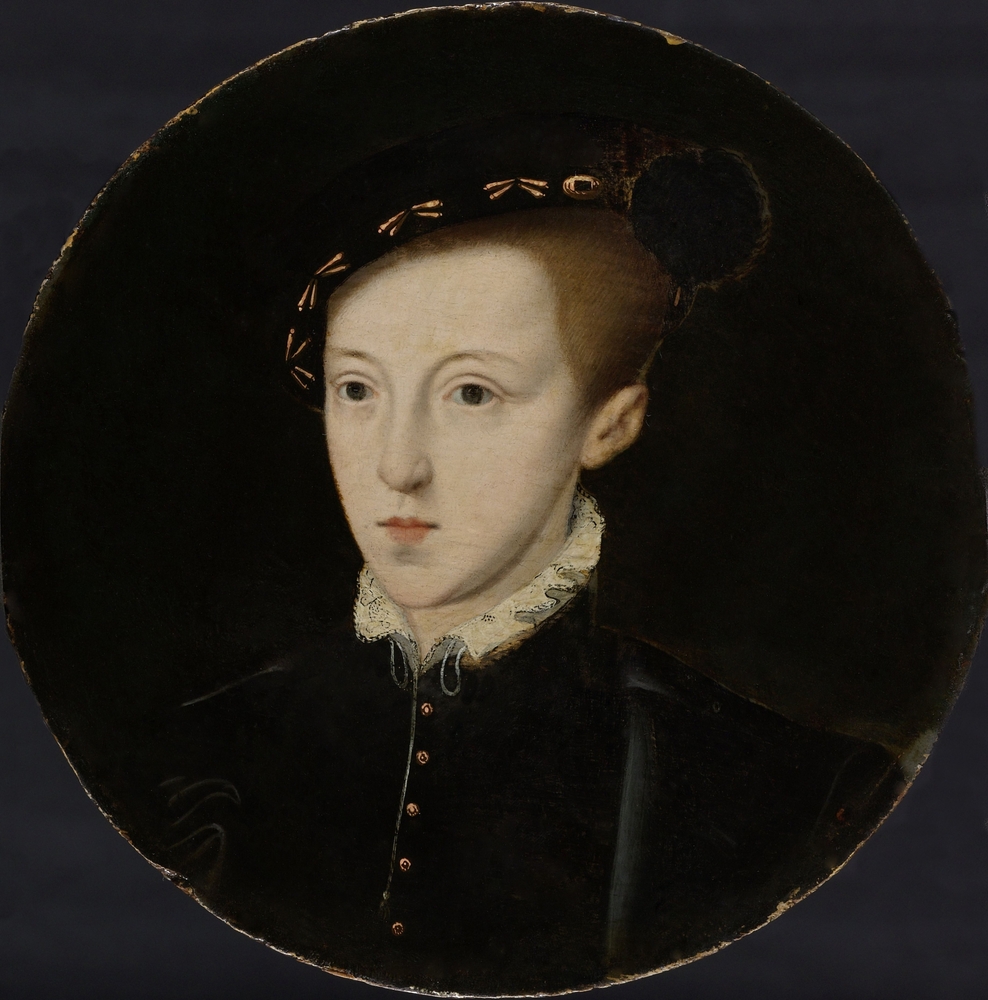
41. He Finally Woke Up—But The World Had Changed
Henry finally came to his senses around Christmas 1454—and he woke up to a world that was completely different than the one he left. He had a son! Richard of York was Protector of the Realm! Nobles were saying that York should usurp him and take the throne! Yet again, Henry found himself in a tense situation that required firm leadership. And what did he do? He made everyone hold hands. Seriously.
 The Hollow Crown (2012– ), BBC
The Hollow Crown (2012– ), BBC
42. His Biggest Plan...Was Love Day
Henry VI's great plan to ease tensions and save his reign...was to hold a holiday called Love Day. In 1458, Henry forced all of England's most important nobles to hold hands and walk from Westminster Palace to St. Paul's Cathedral. He specifically tried to make sure that the people who hated each other the most walked hand-in-hand—he coupled Richard of York himself with Queen Margaret of Anjou.
And if you thought this day couldn't be any more awkward, it actually happened after the two squabbling factions had actually met in battle.
43. His Rival Hated His Friend
If there was anyone Richard of York hated more than Margaret of Anjou, it was probably the Duke of Somerset. York was a cunning and capable leader, while Somerset was pretty much useless. So imagine how furious York was when Henry exiled him away in Ireland and sent the sycophantic Somerset off to France. Richard had to sit and watch as Somerset lost battle after battle, giving up nearly all of England's territory.
So, when Richard finally claimed power during the madness of Henry VI, the first person he set his sights upon was the Duke of Somerset.
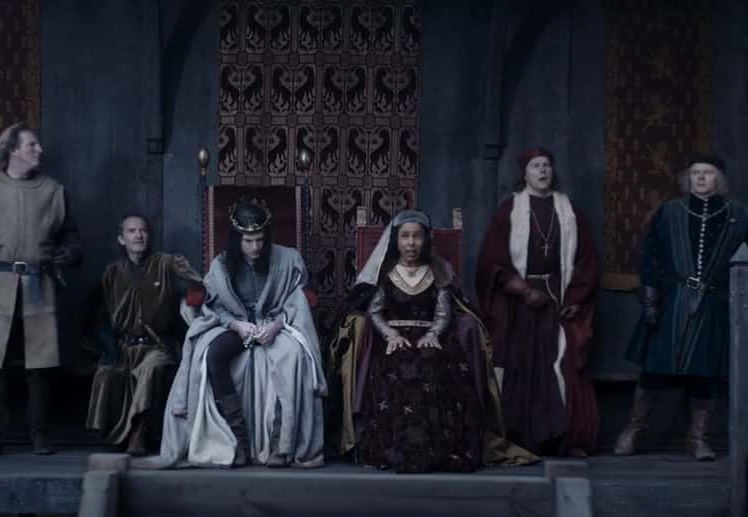 The Hollow Crown (2012– ), BBC
The Hollow Crown (2012– ), BBC
44. His Wife Was Utterly Ruthless
As if sitting in Ireland as his incompetent rival lost all of England's territory in France wasn't bad enough, Richard still had Margaret of Anjou to deal with. The vicious queen allegedly made several attempts on York's life while he was staying in Ireland, but to no avail. York lived to take power—and he never forgot any of the people who crossed him.
 The Hollow Crown (2012– ), BBC
The Hollow Crown (2012– ), BBC
45. He Freed His Incompetent Friend
While he was Protector, Richard had Somerset thrown behind bars—to the delight of many. Somerset's failures in France were a national embarrassment, and few were sad to see him go. Seems like a no brainer, but there was one problem: Henry VI loved the Duke of Somerset, no matter how much he screwed up. As soon as Henry came back to the world of the living, he released Somerset and gave him all of his power back.
For Richard of York, this was the last straw.
 The Hollow Crown (2012– ), BBC
The Hollow Crown (2012– ), BBC
46. He Couldn't Stop Fighting From Breaking Out
Finally fed up with his embarrassment of a king, Richard of York decided to take matters into his own hands. Well aware that the newly-restored Duke of Somerset would probably bring charges against him, he gathered an army and set off to face Somerset directly. The two forces met at St. Albans, in a battle that would go down in history.
47. His Enemies Captured Him In Battle
The First Battle of St. Albans might not seem like that big of a deal on paper: 5,000 men took part, and fewer than 60 were lost. However, on a political scale, it couldn't have been more important. Richard of York achieved his main goal, with the Duke of Somerset dying in battle, but he accomplished so much more than that. He managed to capture Henry VI and forced the king to name him as Lord Protector of England.
Though tensions would bubble for the next few years before battle broke out again, this marked the start of the Wars of the Roses.
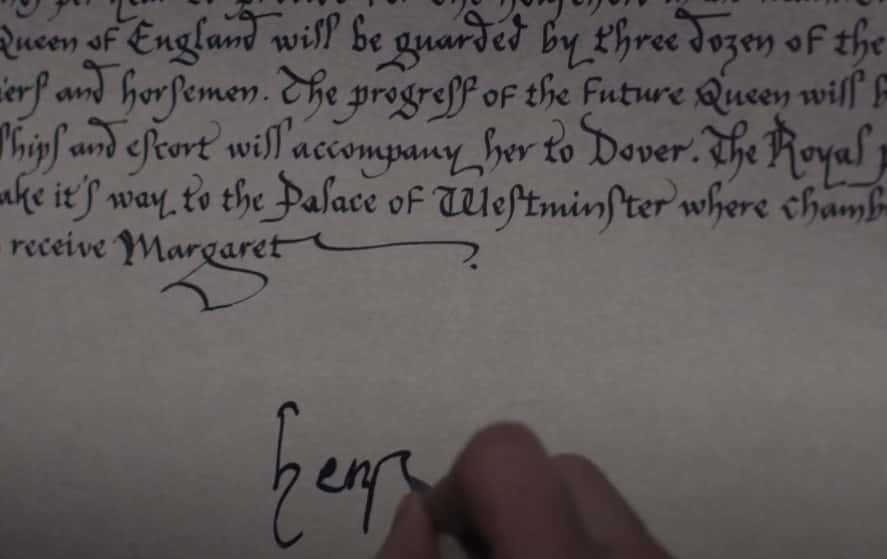 The Hollow Crown (2012– ), BBC
The Hollow Crown (2012– ), BBC
48. He Thought Holding Hands Would Solve His Country's Problems
Henry's well-intentioned but utterly ridiculous "Love Day" actually took place after St. Albans. That's right: Henry forced the sons of men who'd been slain in the battle to hold hands with the very people who slew them. As you can imagine, these mortal enemies needed a little more than that to make amends, and almost as soon as Love Day ended, fighting broke out one again.
49. He Made a Huge Mistake
No, Love Day couldn't stop the Wars of the Roses, and soon the King's Lancastrians and Richard's Yorkists were battling once again. Just two years later, the two sides met on the field at the Battle of Northampton. Though feeble, Henry himself showed up on the battlefield, with his fierce wife Margaret and young son Edward at his side. He hoped it would inspire his men—but it ended in utter disaster.
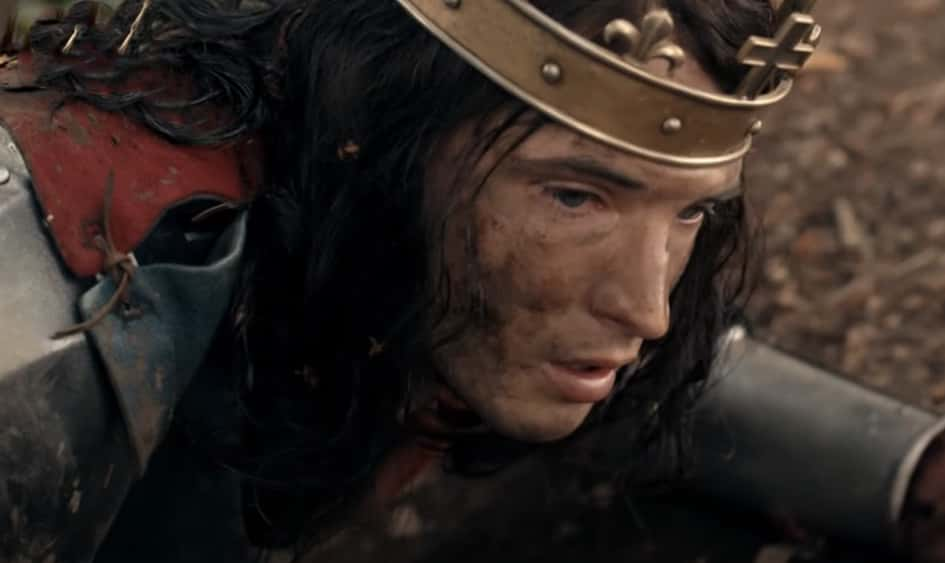 The Hollow Crown (2012– ), BBC
The Hollow Crown (2012– ), BBC
50. His Enemies Captured Him Over and Over
Henry's armies faced the combined forces of Richard of York and the Kingmaker at the Battle of Northampton. The rebels routed Henry's men, and once again, they managed to take the feeble king prisoner. But while her husband had lost the battle, Margaret of Anjou was not about to let England fall through her fingers that easily...
 The Hollow Crown (2012– ), BBC
The Hollow Crown (2012– ), BBC
51. He Did Whatever His Captors Wanted
With the king his prisoner, Richard of York forced Henry VI to disinherit his own son and make him the heir to the throne—nevermind that Richard was many years older than Henry. The cowardly Henry didn't put up much of a fight, but Richard forgot about one key person...
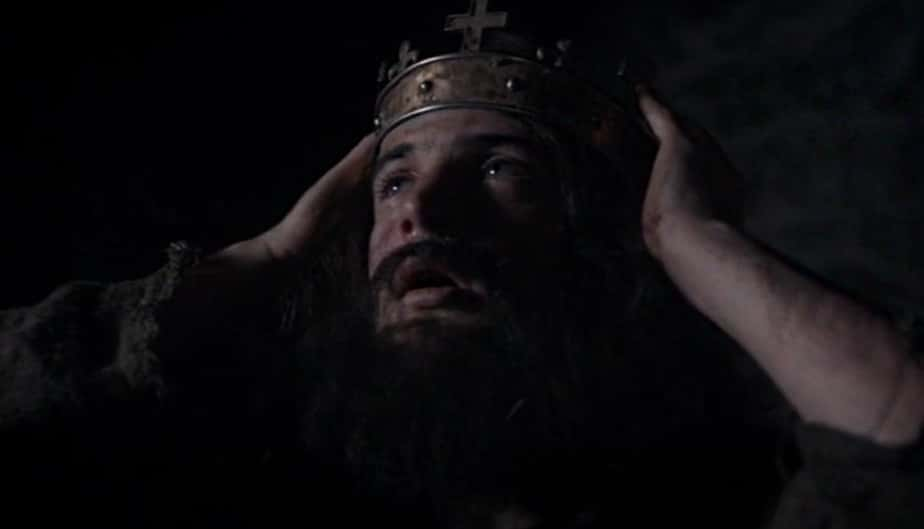 The Hollow Crown (2012– ), BBC
The Hollow Crown (2012– ), BBC
52. His Wife Fought Back
Up to this point, Richard of York seemed like he couldn't lose—but he underestimated his greatest enemy, Margaret of Anjou. While York held her husband captive and made a mockery of the crown, Margaret went out and raised an army to fight for what was hers. But desperate times called for desperate measures, and the men she gathered were a truly fearsome sight...
53. His Wife's Army Was A Bunch Of Thugs
Beggars can't be choosers, so Margaret had to take anyone she could get—and that meant the roving bands of outlaws in the English countryside were fair game. With her son by her side, she convinced these men that York was a deceiver and that her boy was the true heir to the throne. She must have had a way with words, because they ate it up and joined her side.
She finally brought this army against York's at the Battle of Wakefield. By the time the fighting had stopped, the entire nation would be thrown on its head.
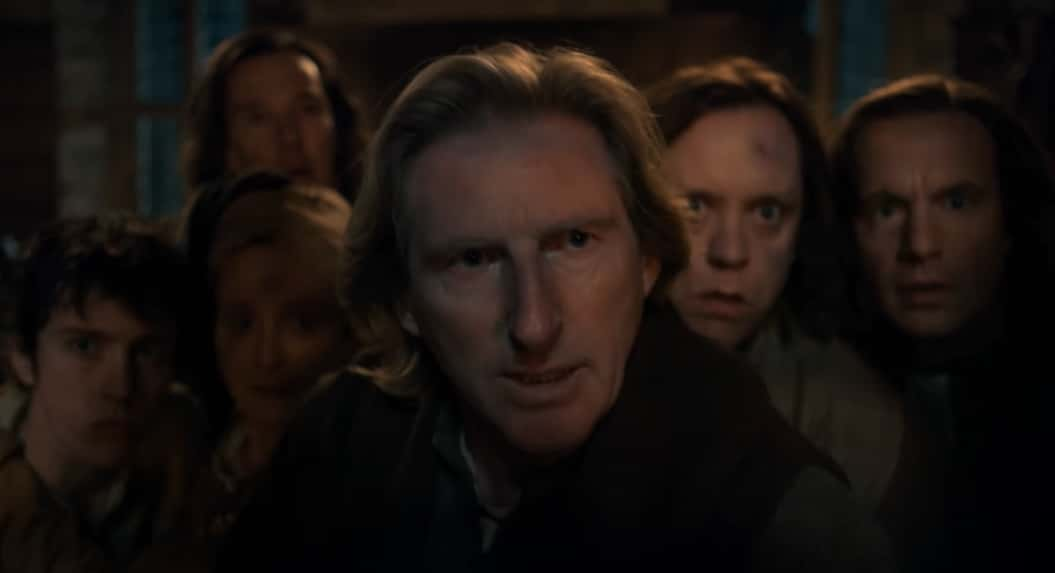 The Hollow Crown (2012– ), BBC
The Hollow Crown (2012– ), BBC
54. His Side Started Winning...
The Battle of Wakefield could not have been a bigger disaster for the Yorkist cause. Margaret of Anjou's forces completely decimated the York army, but the real victory was even greater: Richard of York himself lay lifeless. With the York leader in the ground, it seemed as though the Wars of the Roses had come to a close...but in reality, they were just beginning.
Margaret didn't account for her mad husband Henry VI, whose troubles were far from over.
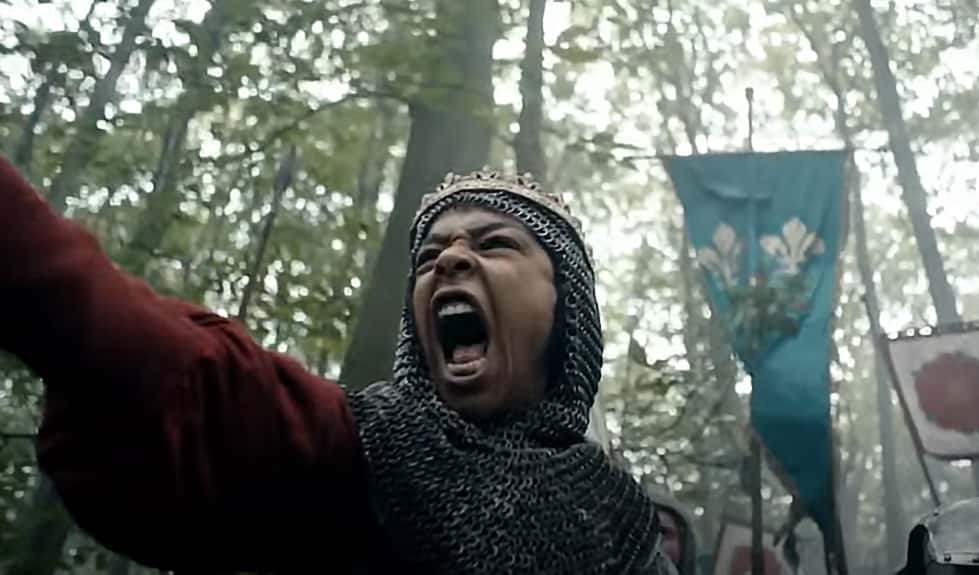 The Hollow Crown (2012– ), BBC
The Hollow Crown (2012– ), BBC
55. But The Fight Was Far From Over
Though Margaret had defeated Richard, the Yorkists weren't about to roll over and concede defeat. Even with their figurehead gone, that didn't change the fact that the Mad King had to go. Fortunately for them, Richard had a son, who was everything Henry VI wasn't. Edward of York was a giant of a man, and when he strode out onto the battlefield resplendent in the finest armor, the weak Henry looked even worse by comparison.
56. He Finally Lost His Throne
Reinvigorated under Edward's leadership, the Yorkists went back on the warpath. Mere months after their devastating defeat at Wakefield, Edward met the Lancastrians once more on the field of battle. During a raging March snowstorm, the two armies faced off at the Battle of Towton, and this time, York ended up on top. In one of the bloodiest battles in the history of England to that point, Edward's forces completely decimated their rivals.
After the brutal victory, Edward finally did what his father never had the guts to do: He deposed Henry VI and crowned himself King Edward IV. York had finally come out on top—but the Wars of the Roses were far from over.
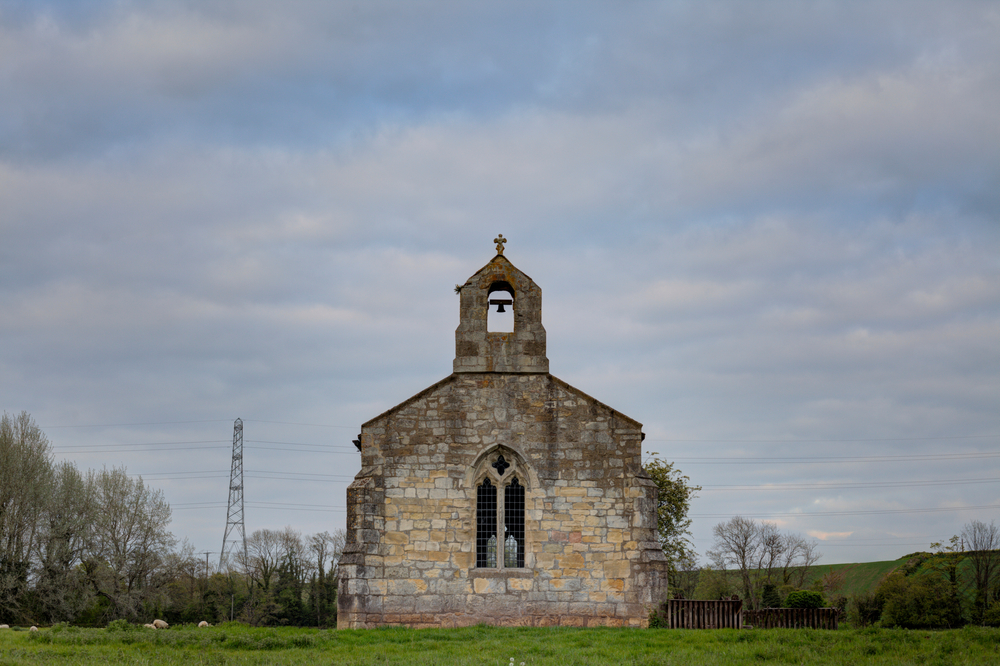 Joe Kirby Photography, Shutterstock
Joe Kirby Photography, Shutterstock
57. He Was Still at Large
Though Edward claimed England's crown, he made one massive mistake. He didn't manage to capture Henry or, more importantly, Margaret. The deposed king and queen fled north to Scotland, where they bided their time and planned their next move. Many of their supporters abandoned London and traveled north to join the exiled monarchs.
But while Margaret made her plans, Henry was still completely useless, and he didn't stay free for long.
58. He Spent Months on the Run
Edward charged north after Henry and Margaret, and he eventually cornered the Mad King at the Battle of Hexham. Edward quickly defeated Henry's forces, but no one could find the king himself. Henry's supporters spirited him away, and he spent the next several months on the run, moving from place to place across the north.
But Henry was the biggest threat to Edward's reign, so the new king wasn't about to give up the chase. Finally, a terrible betrayal saw Henry captured once more.
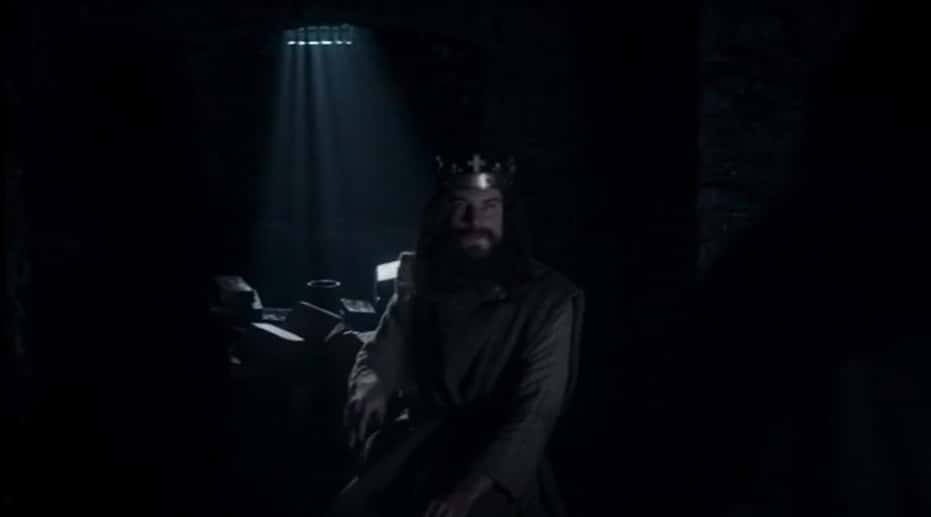 The Hollow Crown (2012– ), BBC
The Hollow Crown (2012– ), BBC
59. His Allies Betrayed Him
While Henry hid out in Lancashire, a treacherous monk tipped off his location to some local Yorkists. When the men entered the house where he was hiding, Henry frantically fled into the woods—to no avail. The Yorkists captured him and dragged him back to London, where Edward had him thrown in the Tower of London. But while it seemed like his end was nigh, the Mad King had one "advantage"...
60. He Was More Useful Alive
You might be wondering why Edward didn't just execute Henry and be done with it—but he had a better plan in mind. Edward, like everyone else, knew that Henry was completely useless. With him out of the picture, someone far more threatening might take up the Lancastrian cause and pose a serious threat to Edward's crown. So, rather than risk it, Edward simply threw the feeble figurehead in the Tower to rot while he went about ruling the country.
By this point, King Edward IV probably felt pretty comfortable on his throne—but he never expected what was going to happen next.
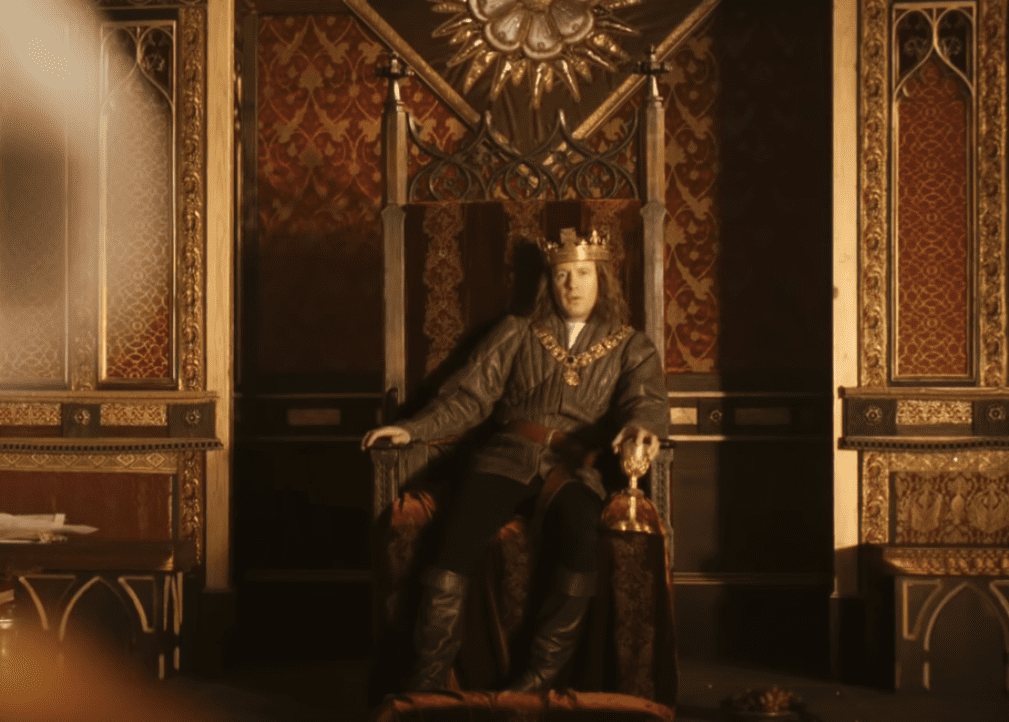 The Hollow Crown (2012– ), BBC
The Hollow Crown (2012– ), BBC
61. His Wife Teamed Up With Her Nemesis To Save Him
Margaret of Anjou fled to France while her husband was captive, and eventually, one of her greatest enemies came to her, begging for help: Richard Neville, the Kingmaker. The same man who had fought tirelessly to depose her and Henry in the first place! It turns out, back in England, things were not going as smoothly as it seemed.
62. The Kingmaker Regretted His Decisions
Richard Neville, the Earl of Warwick, spent years fighting for the Yorkists in the Wars of the Roses. Edward IV had him to thank for the crown on his head, but once he was king, Edward didn't want to listen to anyone. The final straw came when he went and married the beautiful, yet low-born, Elizabeth Woodville. Neville had worked tirelessly to find a political match for Edward who would solidify his rule. The king marrying Woodville was basically a smack in the face.
After fighting tooth and nail to see Henry VI removed from the throne, Neville came to a sobering realization: an idiot king was better than a king who wouldn't listen. So, he ended up making an alliance with his greatest enemy.
63. Henry Had a Cold-Blooded Wife
When Neville came to Margaret for help, she made sure he knew who was boss this time. She made him kneel silently in front of her for 15 painful minutes before she even spoke a word to him. Seriously, how did this femme fatale ever marry a guy like Henry VI?
64. His Son Had a Twisted Mind
While Henry's wife and son were in France, an ambassador from Milan encountered the boy—and he didn't like what he saw. He wrote that young Edward of Westminster "already talks of nothing but cutting off heads..." Apparently, he couldn't have been more different than his father. But once Edward finally found himself on the battlefield, he would sing a different tune...
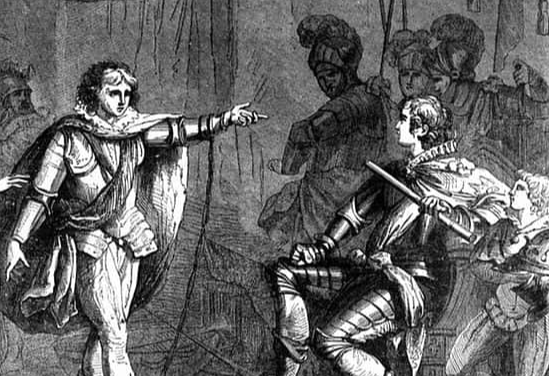 Wikimedia Commons, John Cassell
Wikimedia Commons, John Cassell
65. People Took Advantage of Him
The Kingmaker had made one king already, so why not make (or, at least, re-make) another? Joining forces with Margaret in France, Neville sailed back across the English Channel, stormed London, forced Edward to flee, and freed Henry from the Tower. But, if you think that Henry VI's crown would stick this time, you haven't really been paying attention...
66. He Lost His Mind For Good
Henry was so far gone by the time Neville freed him from the Tower of London, he allegedly had to be led through the city of London by the hand like a child. Not exactly the most heartening sight for a country that had suffered for so long.
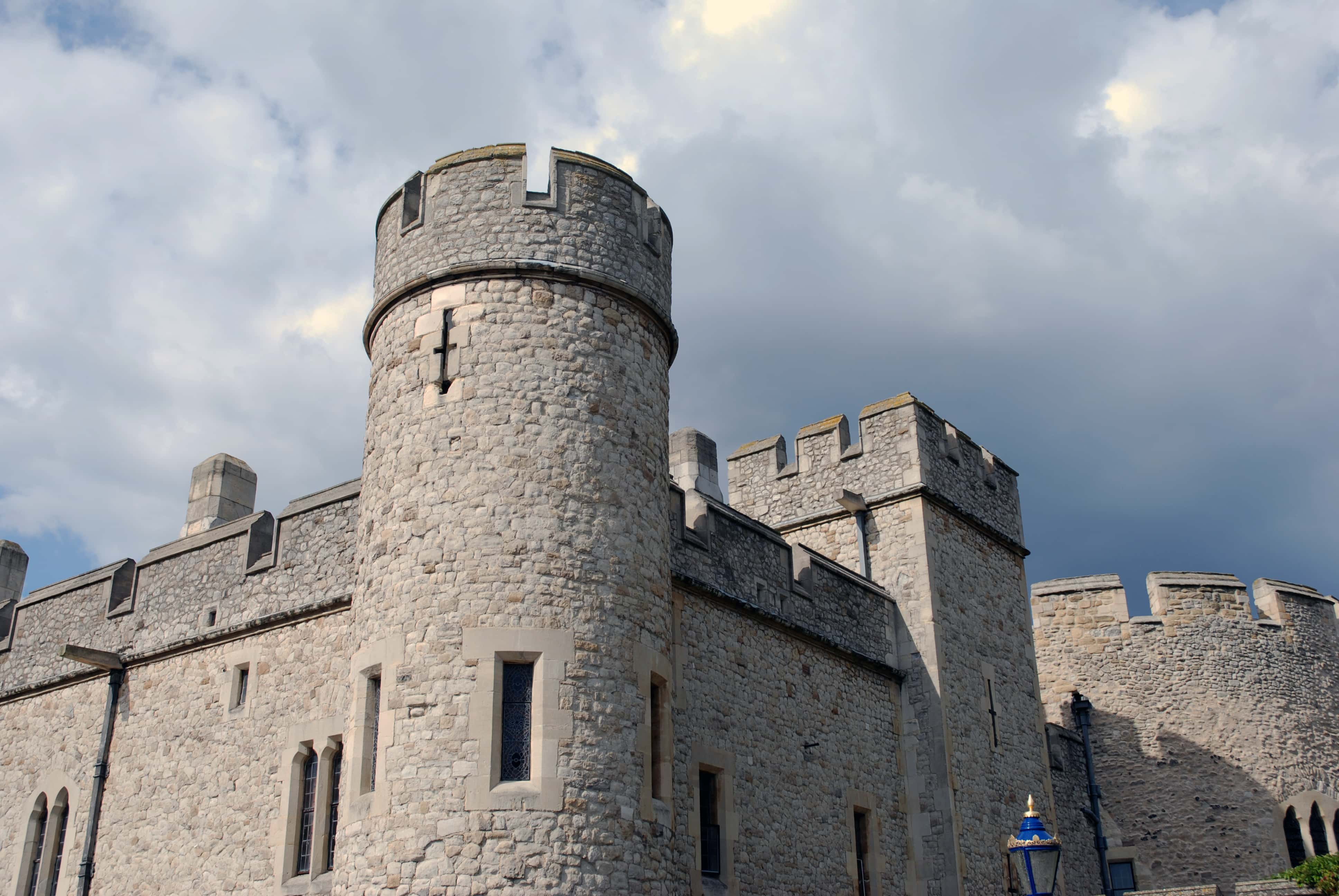 Wikimedia Commons, allen watkin
Wikimedia Commons, allen watkin
67. His One-Time Enemy Ran the Show
For his part, the Kingmaker couldn't be happier with Henry's near-catatonic state. It left him completely free to run the country as he saw fit—until he made a fatal mistake. Remember how all of this started because England was losing its territory in France? Well, Richard Neville sure didn't forget, and just six months after he took power, he declared war on Burgundy.
Neville's hostility was brash—and stupid. This misinformed move would be the last he ever got to make.
68. His Was Running Out Of Time
Before Neville set his forces upon Burgundy, Edward IV had been pretty much out of luck. He had no great army to speak of, and he had to sit and watch as the Mad King daydreamed on the throne where he once sat. But Neville's plan changed everything: The Duke of Burgundy gave Edward an army to put the Kingmaker down for good—and that's just what he did.
69. His Rival Returned With an Army
Mere months after Margaret and Neville deposed him, Edward sailed back to England with an army. He met Neville on the field at the Battle of Barnet, and this time, he came out on top. Neville lost his life in the fighting, but Edward was far from satisfied. The last time he took the throne, he left too many of his enemies alive—he wouldn't make the same mistake again.

70. He Lost His Heir
By this point, Henry and Margaret's son, Edward of Westminster, had grown into a young man. He was the kind of figurehead that the Lancastrian armies could rally around—and King Edward IV couldn't have that. He met Henry's heir at the Battle of Tewkesbury, and again he came out the victor. By the time the fighting stopped, young Edward of Westminster, just 17 years old, lay dead.
The Lancastrian hopes perished with Edward that day—but there was more bloodshed to come.
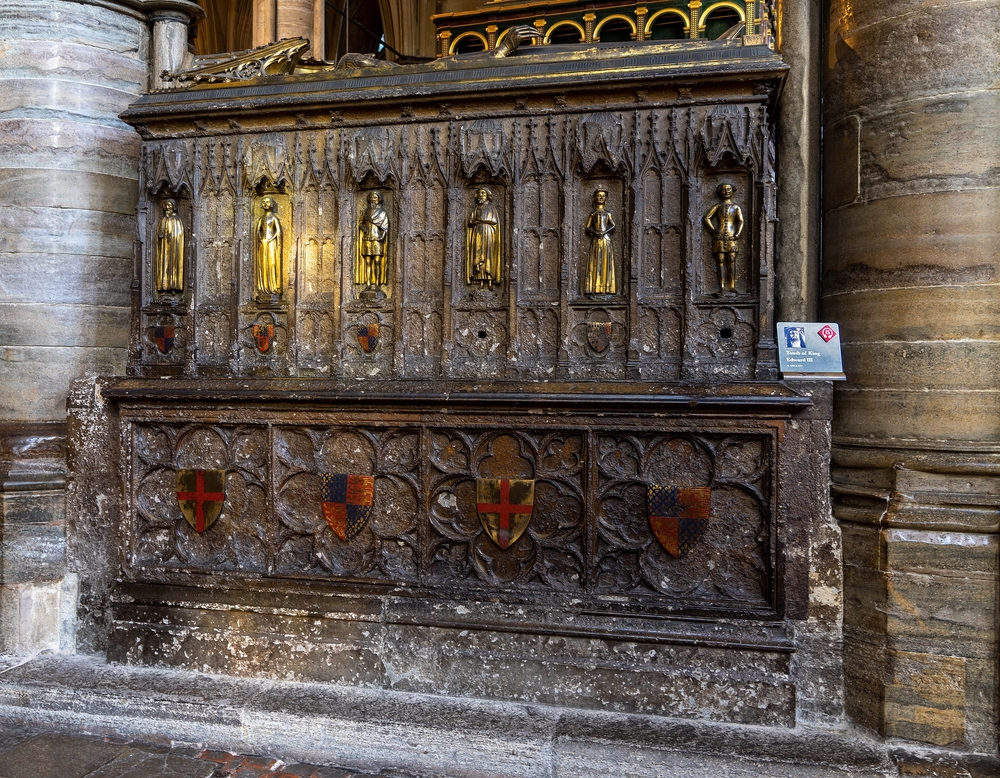
71. His Son Met a Tragic End
Back in France, Edward of Westminster had boasted about fighting grand battles and beheading his enemies—but the real thing was a totally different beast. According to one account, the king's forces found young Edward quietly weeping near a grove of trees during the battle. They set upon him and beheaded him quickly, despite his pleas for mercy.
72. He Went Back to the Tower
After Tewkesbury, King Edward had Henry VI thrown in the Tower of London once again—but Edward wasn't about to make the same mistake twice. Up to that point, he'd kept Henry around so that his more capable son wouldn't have a claim to the throne. But now that the boy was out of the picture, Edward was free to get rid of Henry once and for all...
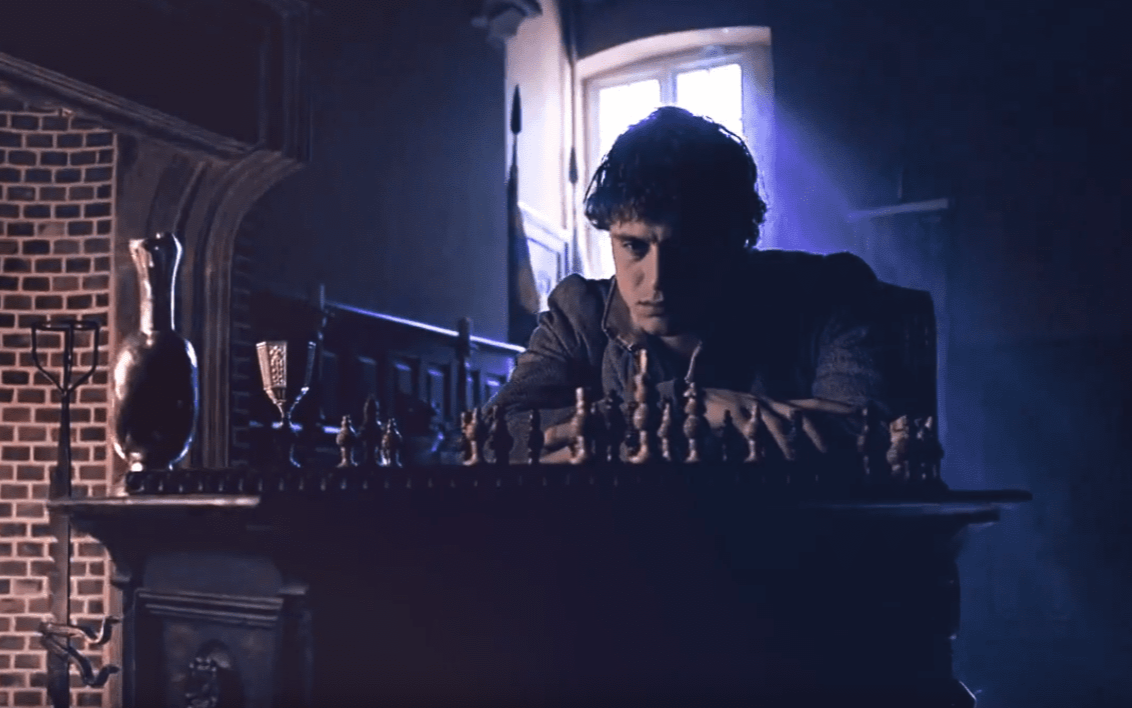 The White Queen, BBC Drama Productions
The White Queen, BBC Drama Productions
73. At Least His Ancestors Liked Him
By every single metric, Henry VI was a terrible king, but his ancestors actually worshipped him. Henry VII, the first Tudor king and Henry VI’s nephew, encouraged a posthumous cult around his uncle as part of anti-Yorkist propaganda. As a result, many years after Henry VI's life, priests attributed several miracles to him. If the stories were to be believed, the divine Henry VI managed to cure illness with a mere touch and bring people back from the grave!
74. His Sainthood Wasn't Meant to Be
As late as the reign of Henry VIII, there were still plans to canonize Henry VI as a saint and martyr. Unfortunately, Henry went on to abandon the Catholic Church so that he could get a divorce. Kinda hard to get the Pope to canonize your ancestor when you smack him in the face like that.
 The Tudors (2007–2010), Showtime Networks
The Tudors (2007–2010), Showtime Networks
75. He Was a Decent Man
You can kind of understand why some people eventually appreciated Henry VI. Sure, he was pretty much incapable of, you know, governance, but aside from that, he was a remarkably humane king. He was against horrific punishments such as drawing and quartering, and he was almost always extremely merciful with his enemies. He really wasn't a bad guy...just a bad king.
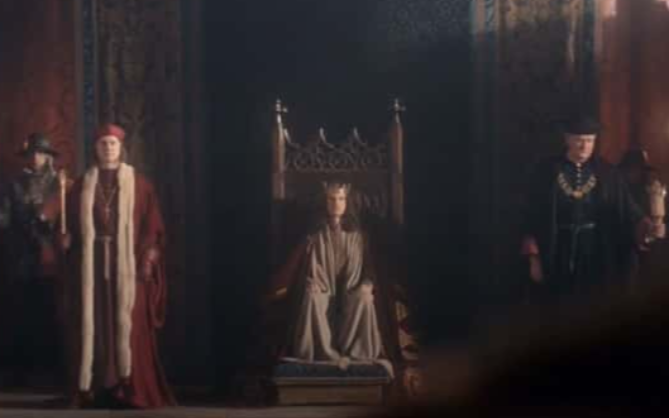 The Hollow Crown (2012– ), BBC
The Hollow Crown (2012– ), BBC
76. He Was a Chilling Sight
What should have been one of the most triumphant moments of Henry's life turned into one of the darkest. After slaying Richard of York, Margaret of Anjou's forces kept pushing forward until they finally freed the king from captivity at the Second Battle of St. Albans. However, when the Queen's men finally tracked Henry down, the man they found horrified them. As the battle raged, Henry was laughing and singing like a madman—his mind had gone once again.
Margaret put Henry back on his throne, but with the king gone mad, they were still doomed.
77. He Was Merciful—His Family Was Not
Two knights had kept watch over Henry VI while he was in captivity the first time. When Henry's men freed him following the Battle of Wakefield, the king promised to spare their lives. But while Henry was merciful, his wife was not—and she had an utterly disturbing revenge in mind. Margaret overruled Henry and asked her son, a child, to decide how the two knights would die. Plot twist: these knights were also his cousins.
When young Edward chose decapitation—all while his relatives begged for their lives—Margaret went ahead with the executions.
78. His Broken Heart...
Henry VI's final stint in the Tower of London didn't last long—the official record said the deposed king passed of "melancholy" about a month after he arrived. That would make sense, based on the king's vulnerable disposition and the fact that his son had just been slain. However, almost as soon as Henry passed, dark rumors spread through the English court.
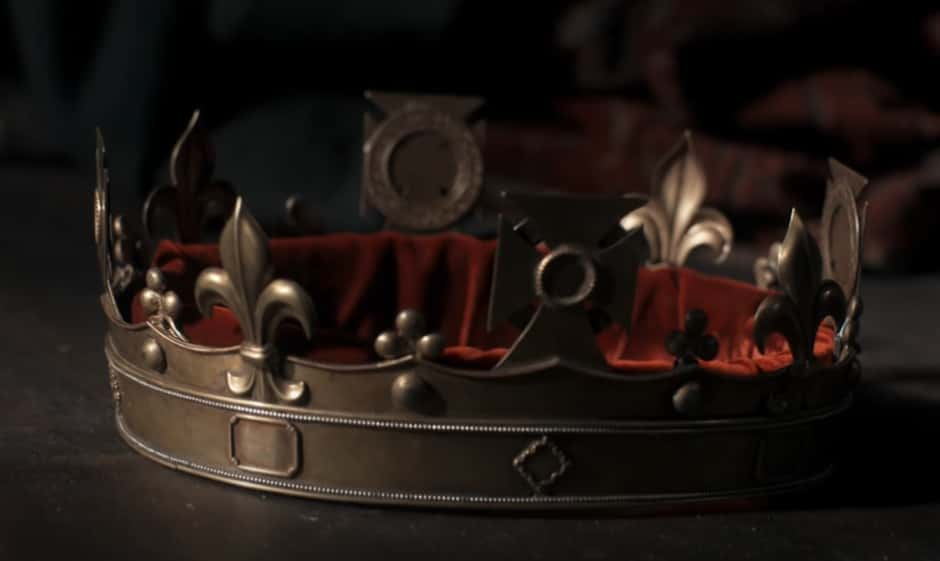 The Hollow Crown (2012– ), BBC
The Hollow Crown (2012– ), BBC
79. Or Was It Something Darker?
Most people assumed that "a broken heart" wasn't the likeliest cause of his demise. More like a broken skull. However, no one ever saw the Mad King's body, so nobody could say for sure whether Edward was behind his demise. But years later, archaeologists uncovered Henry's remains, and they discovered the grisly truth...
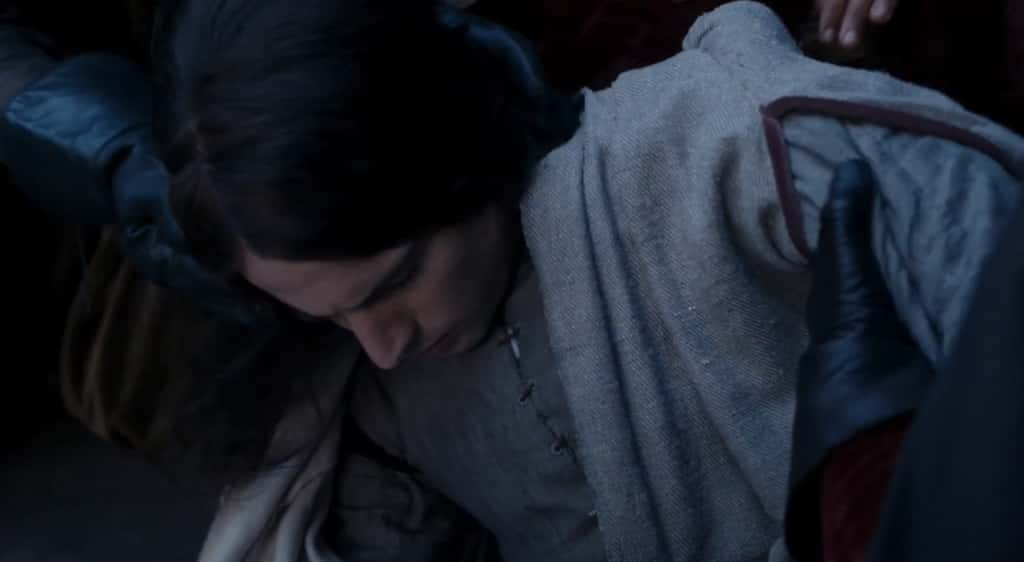 The Hollow Crown (2012– ), BBC
The Hollow Crown (2012– ), BBC
80. Probably Not
Researchers exhumed Henry's remains in 1910, and what they found didn't look too "melancholic." His skull was badly damaged, and his remaining tufts of blond hair were covered with blood. Sure seems like Edward had a hand in Henry's final end.





